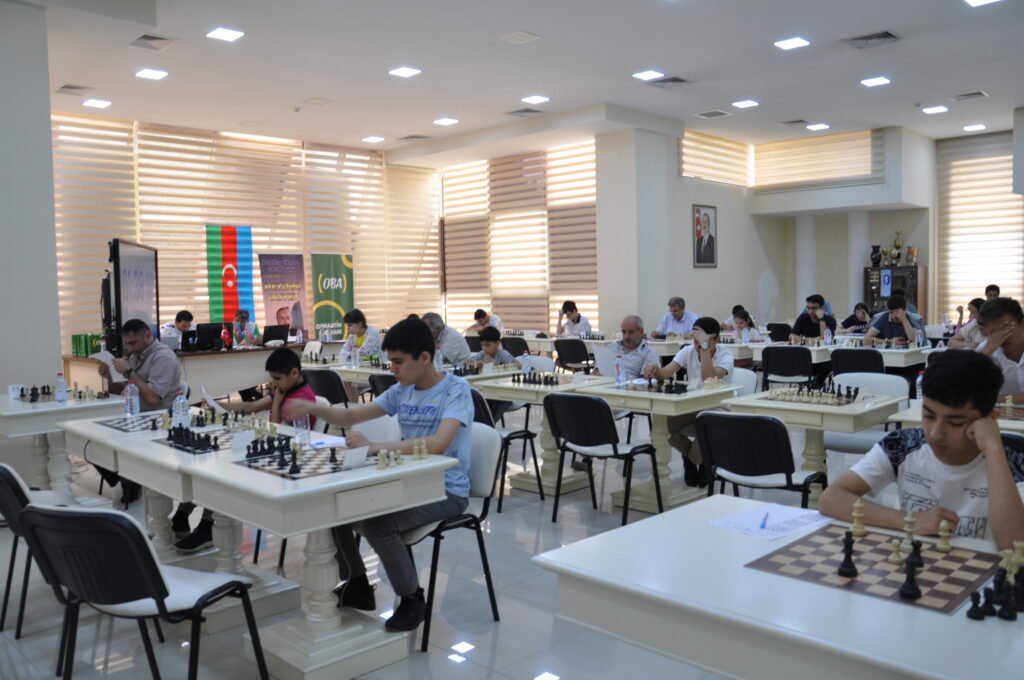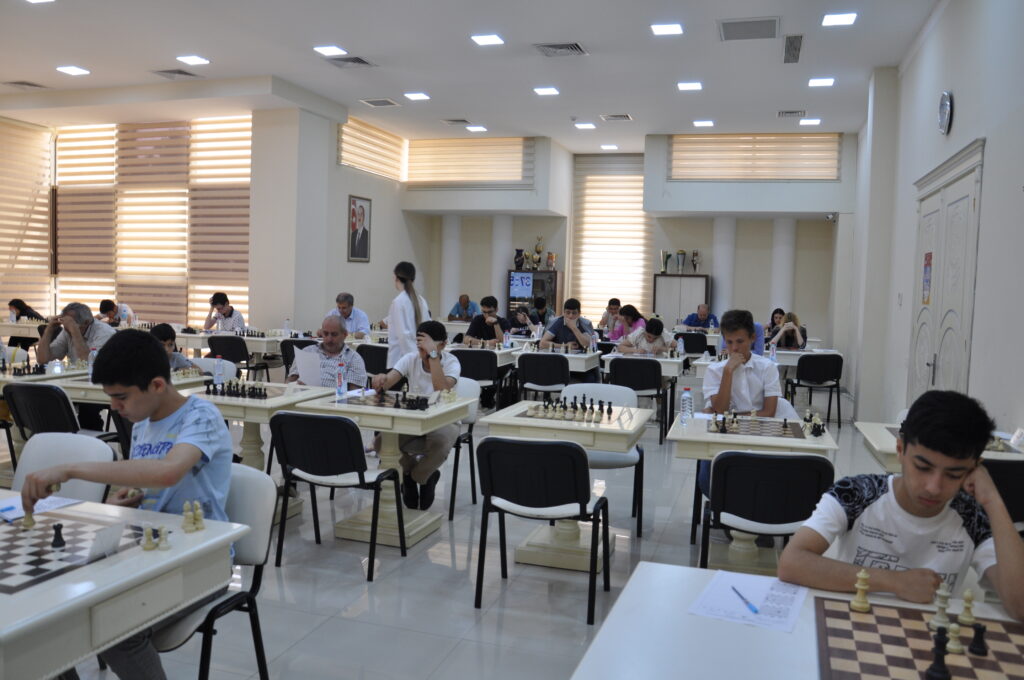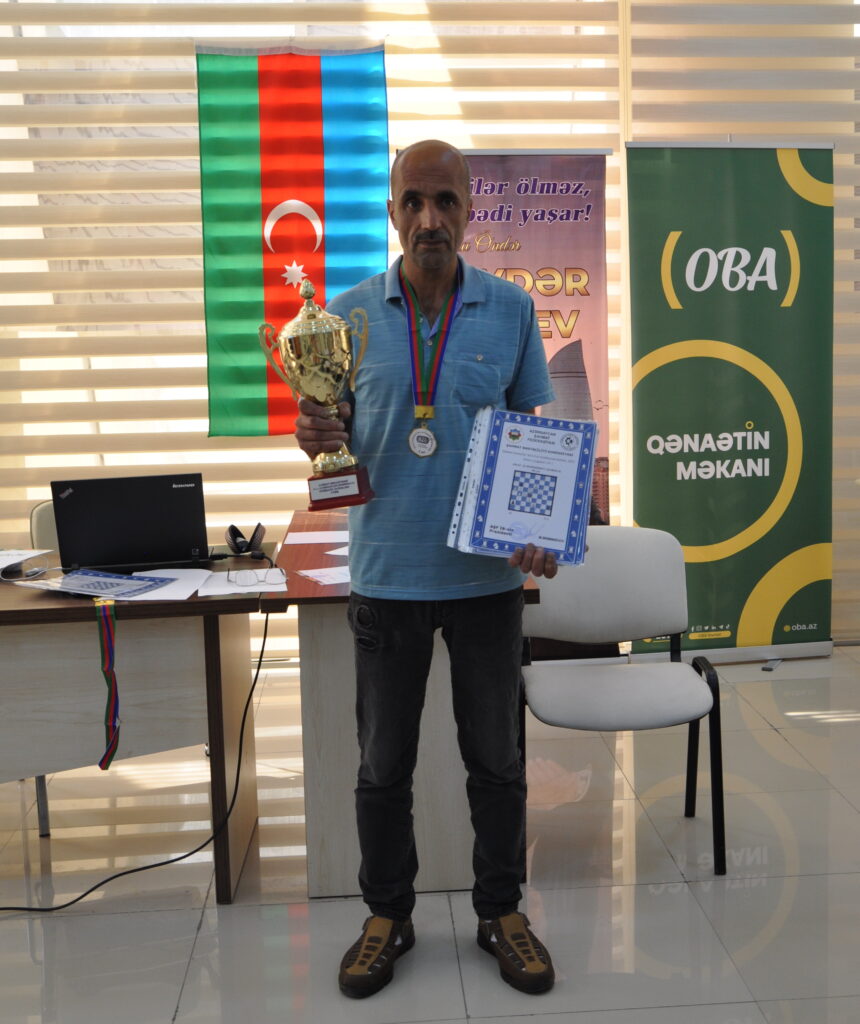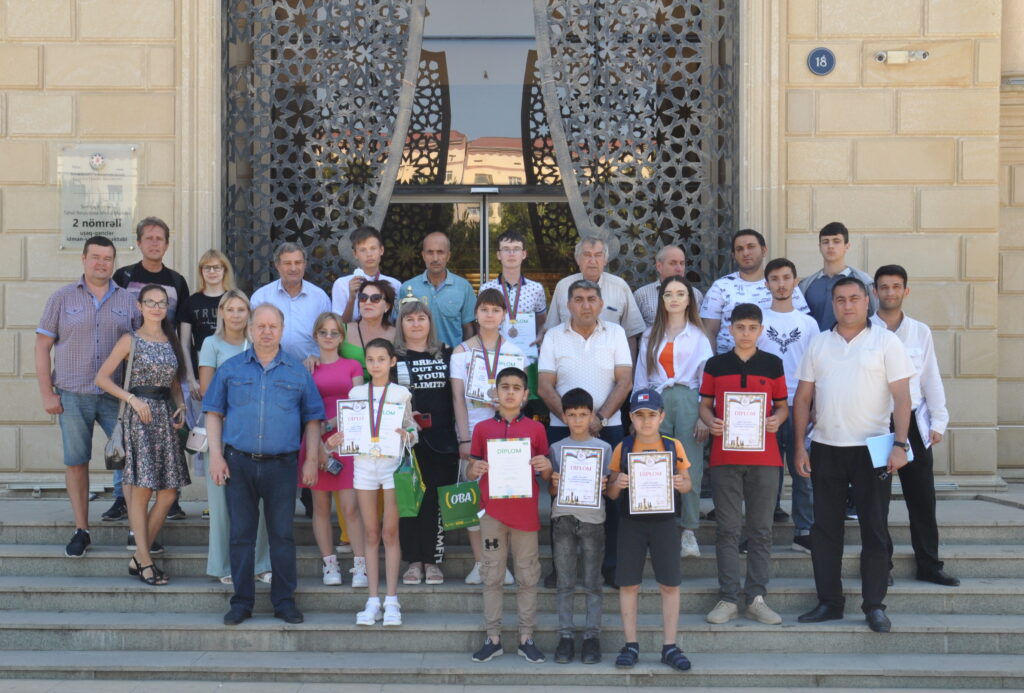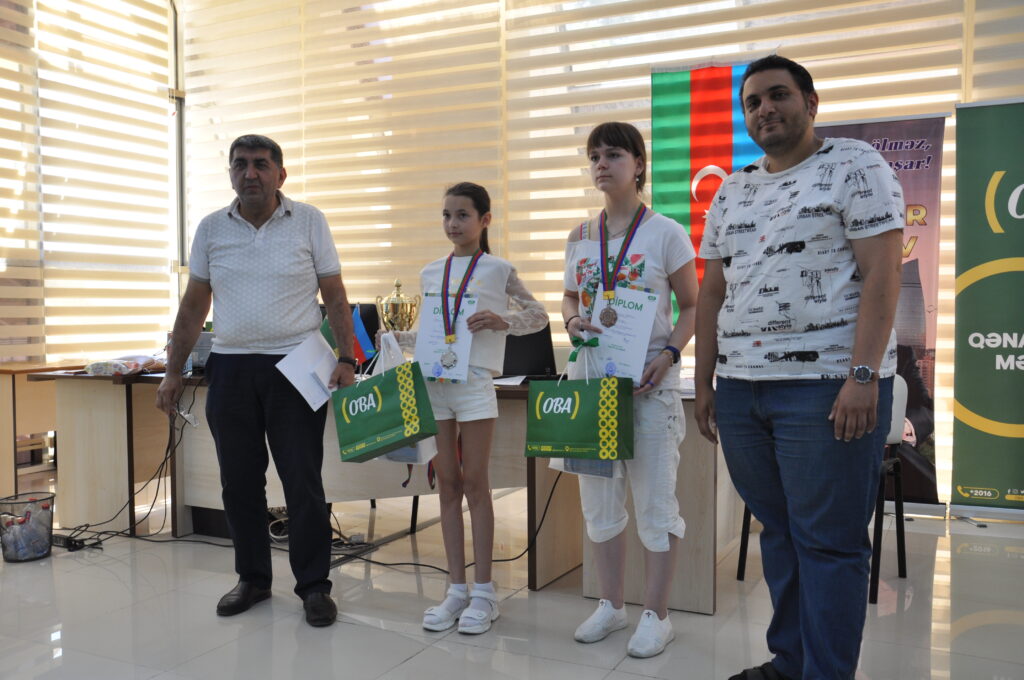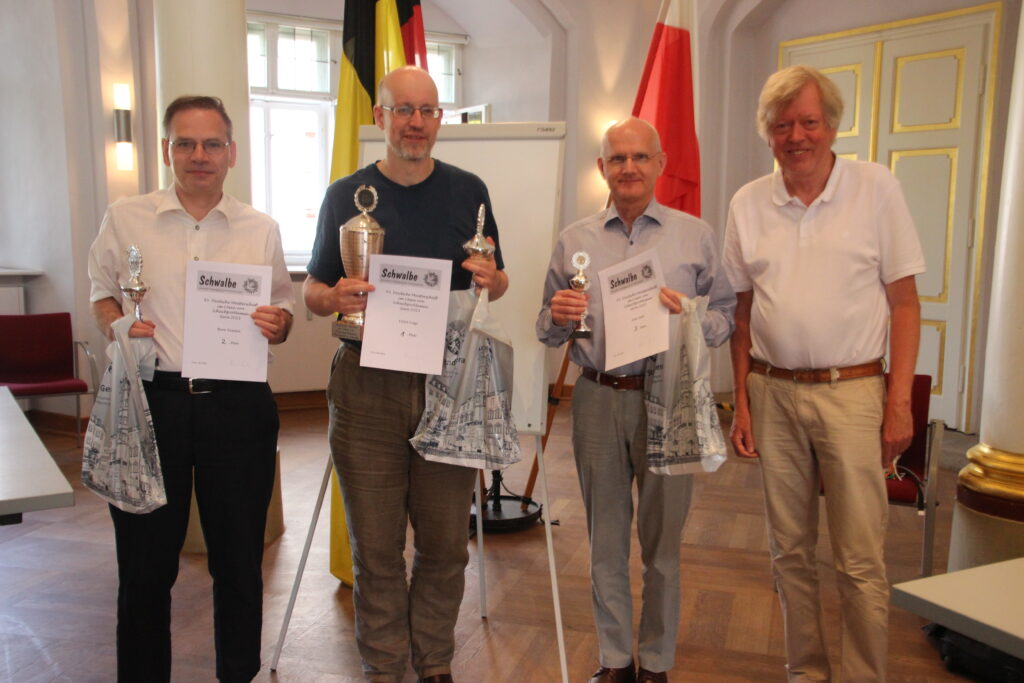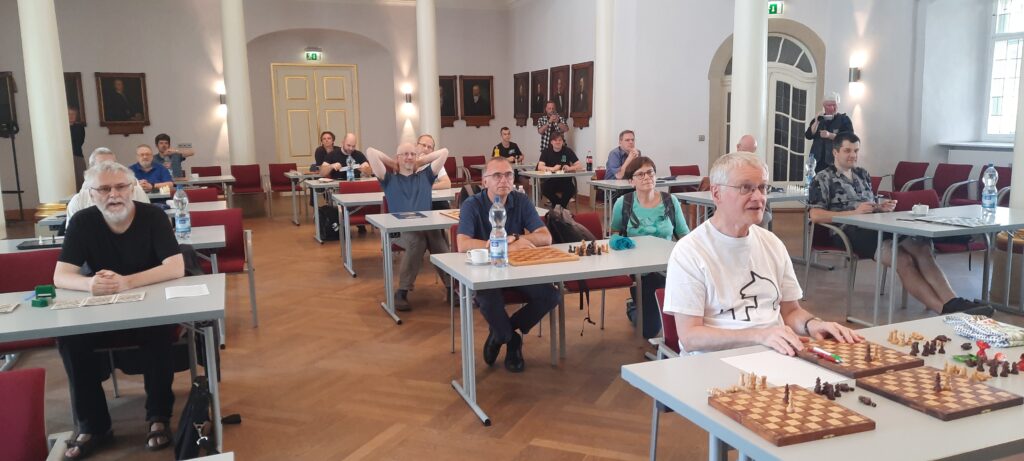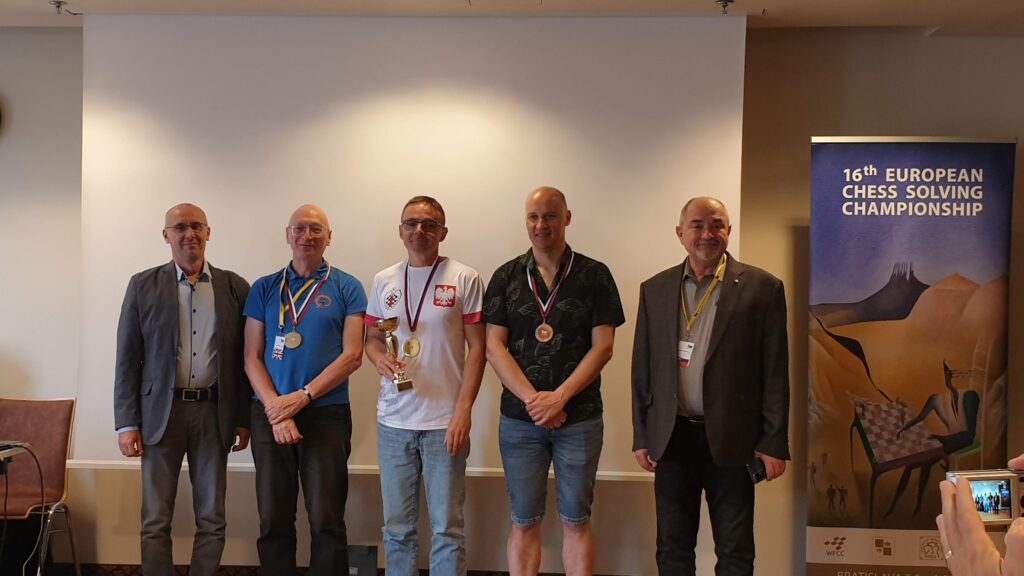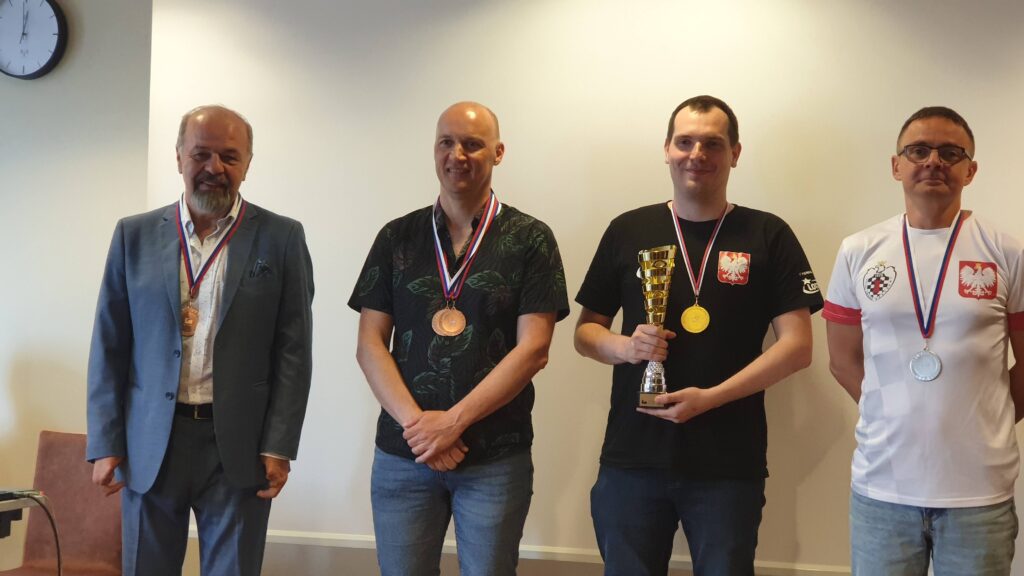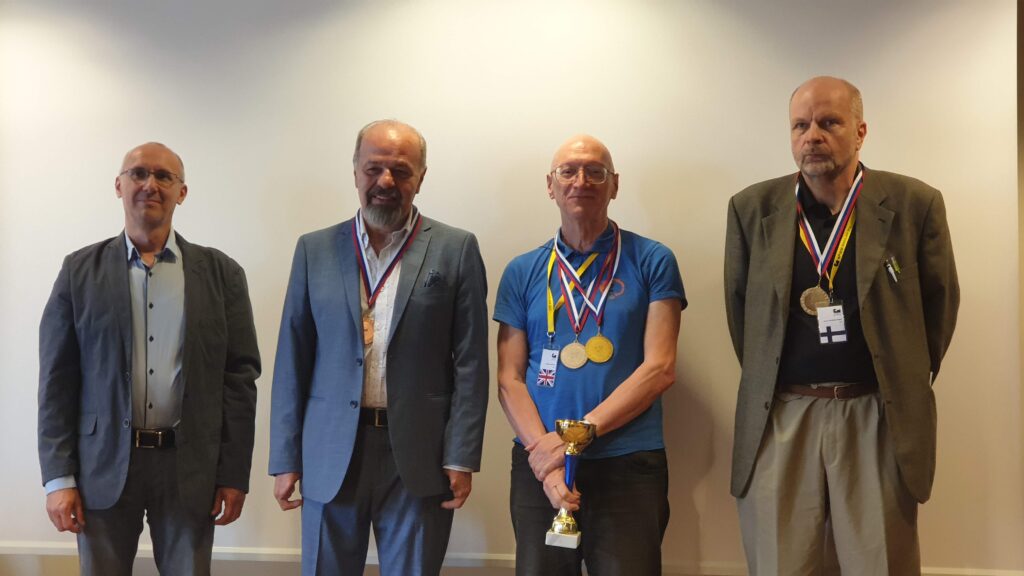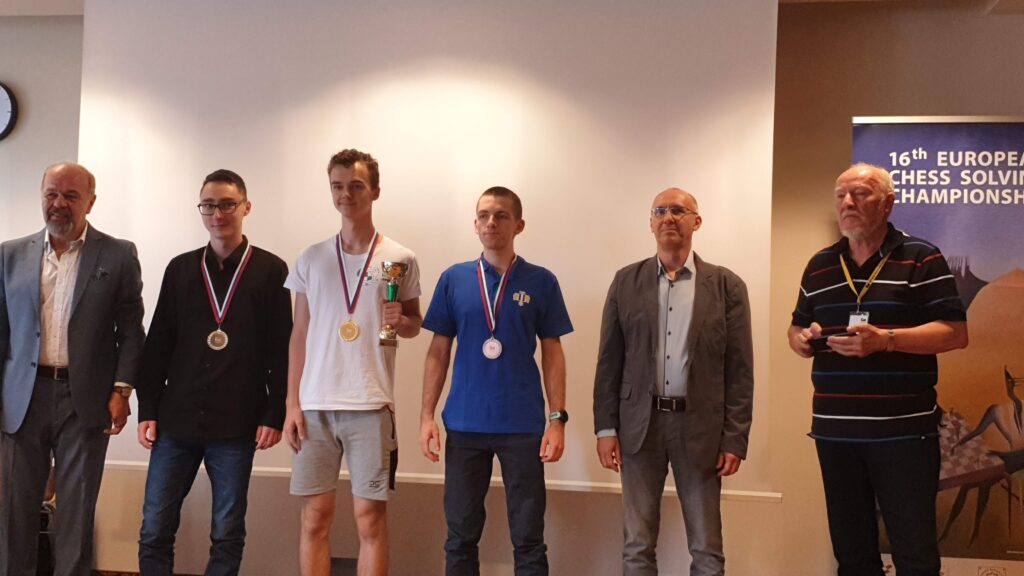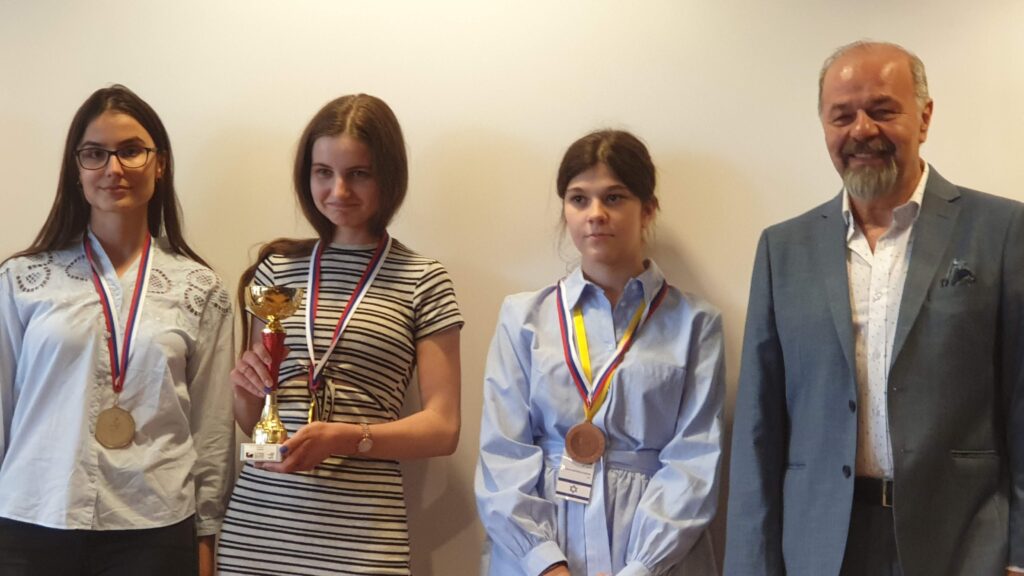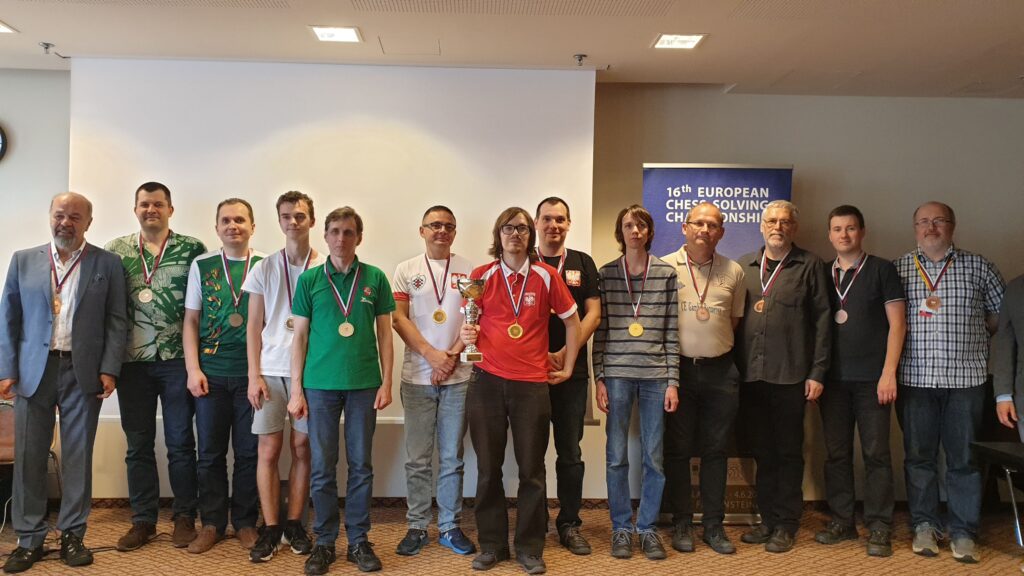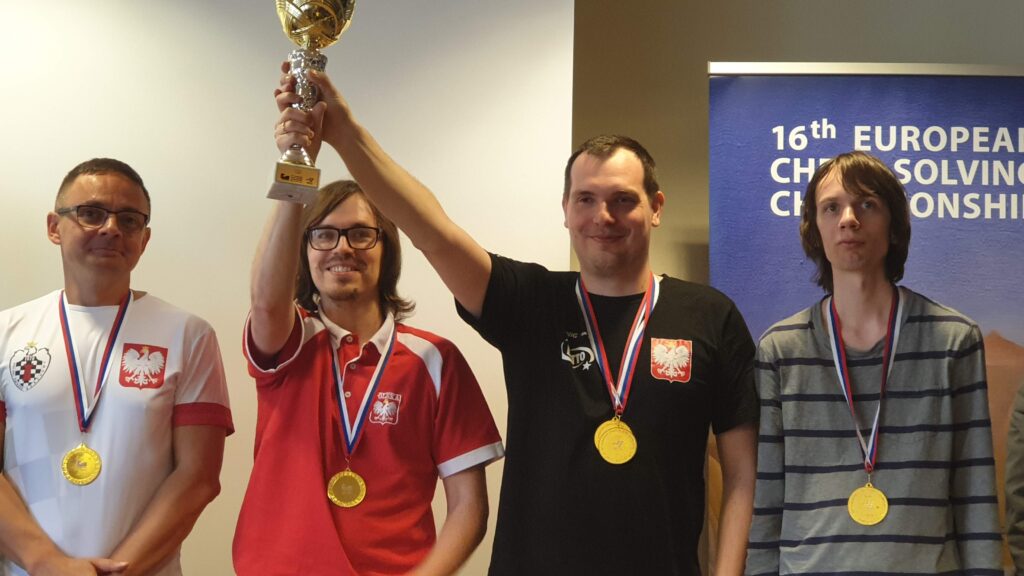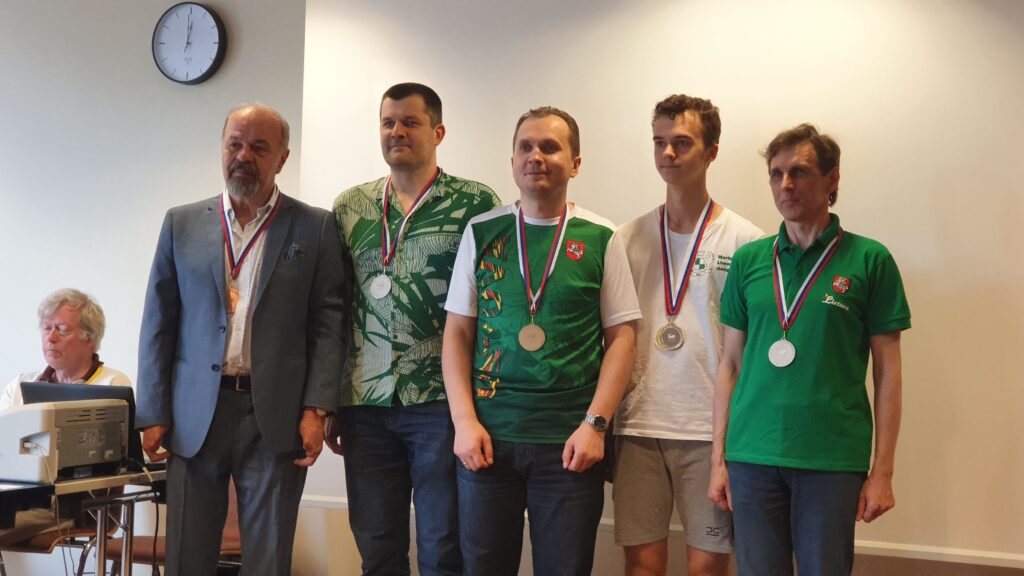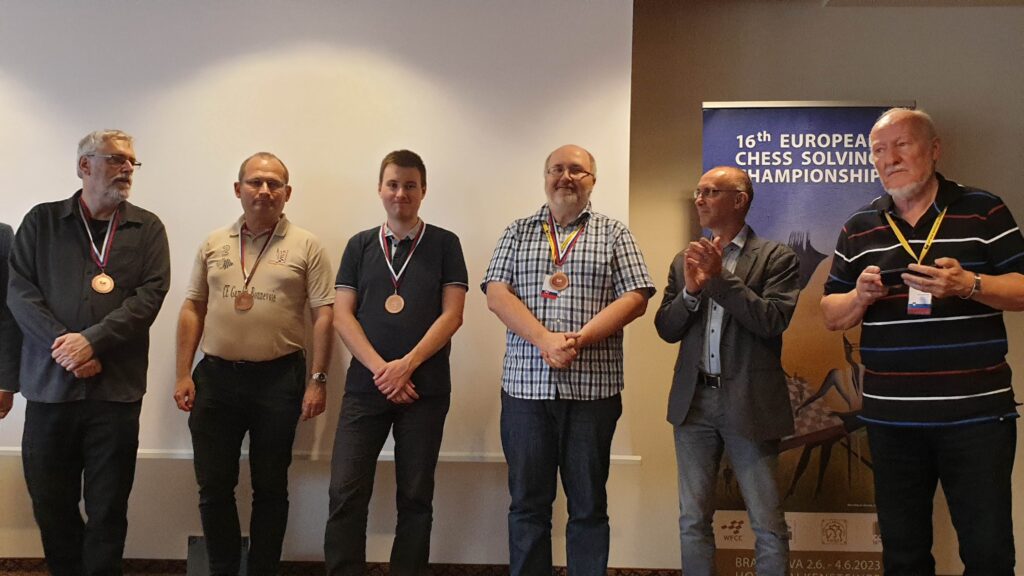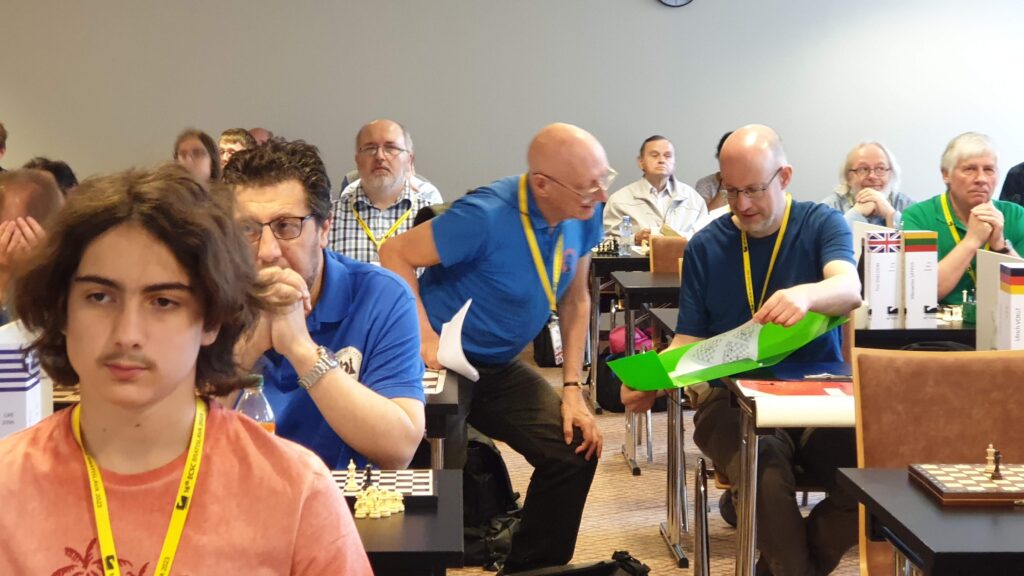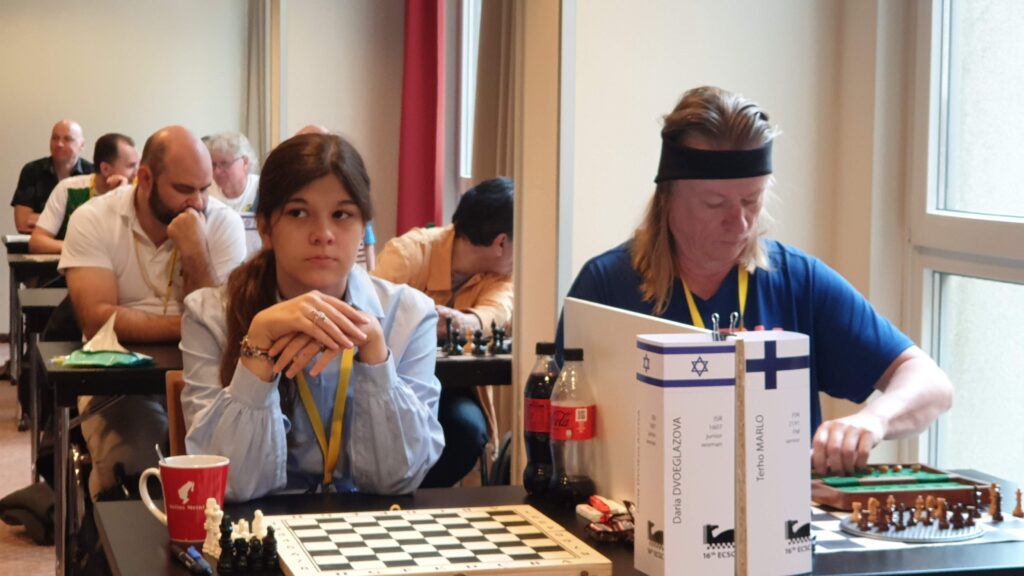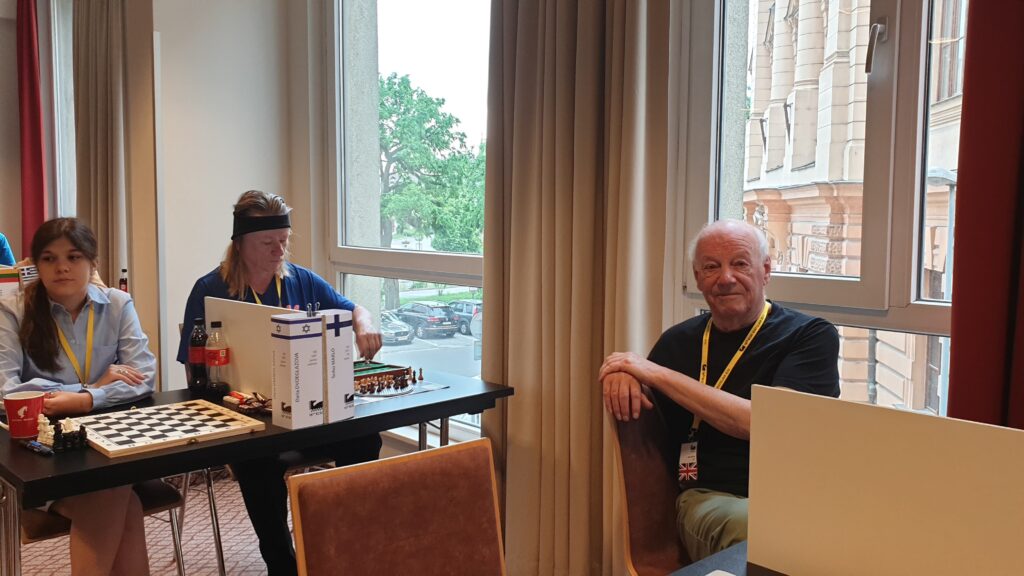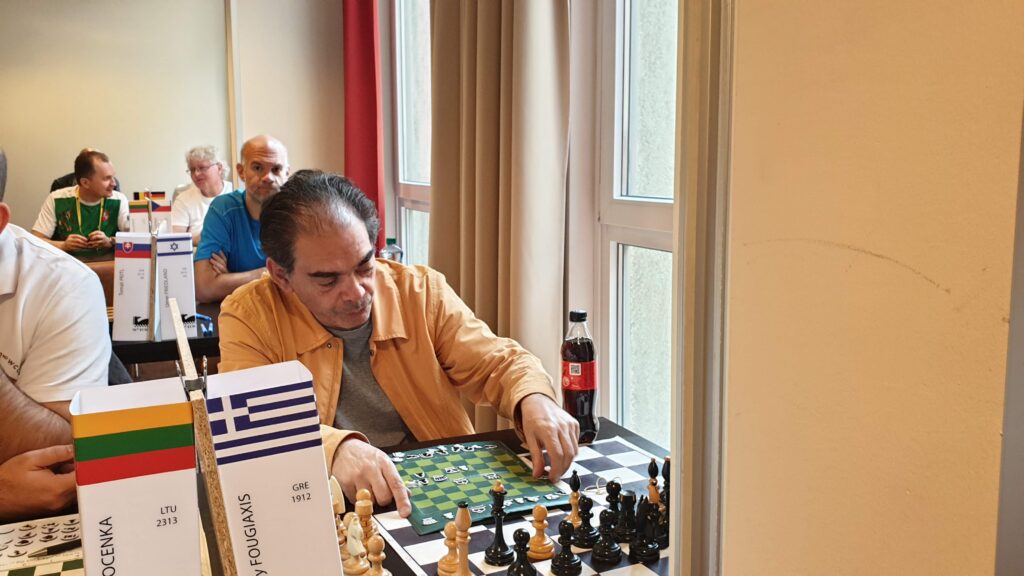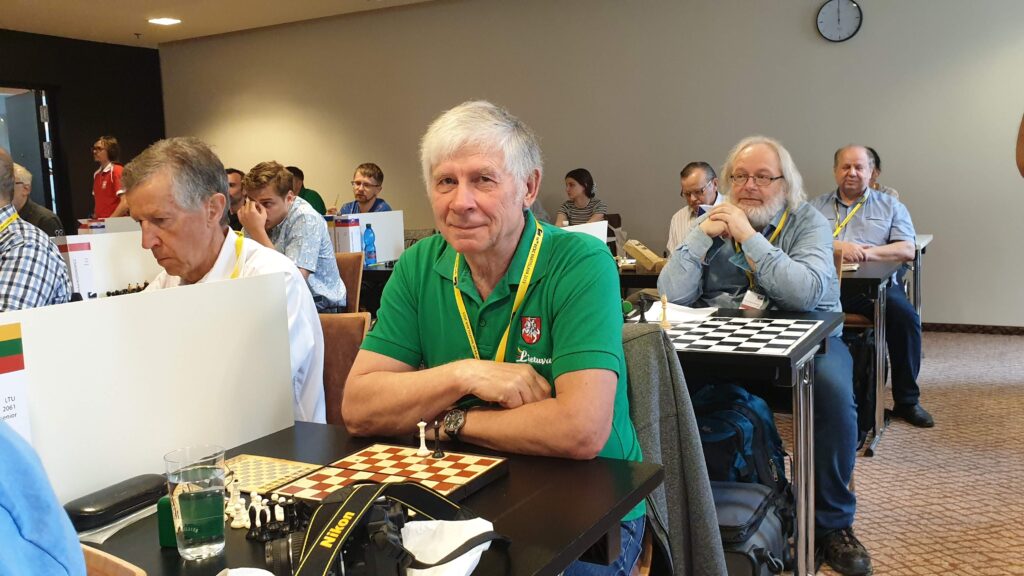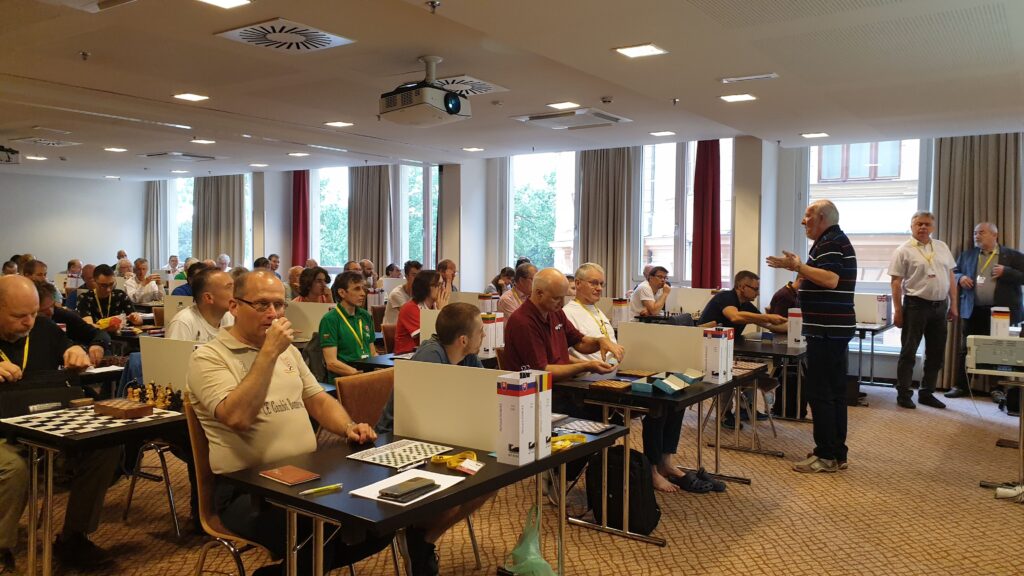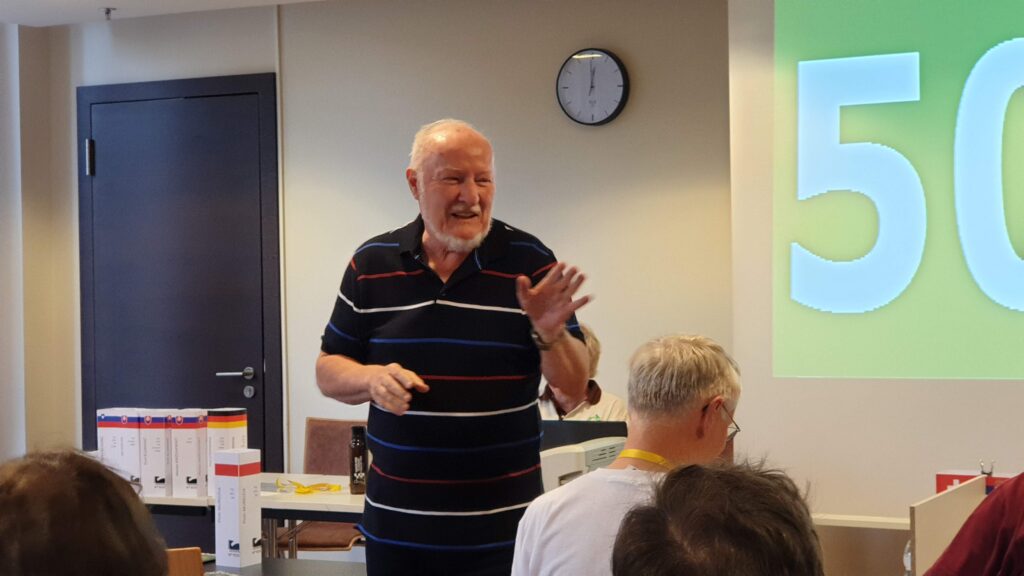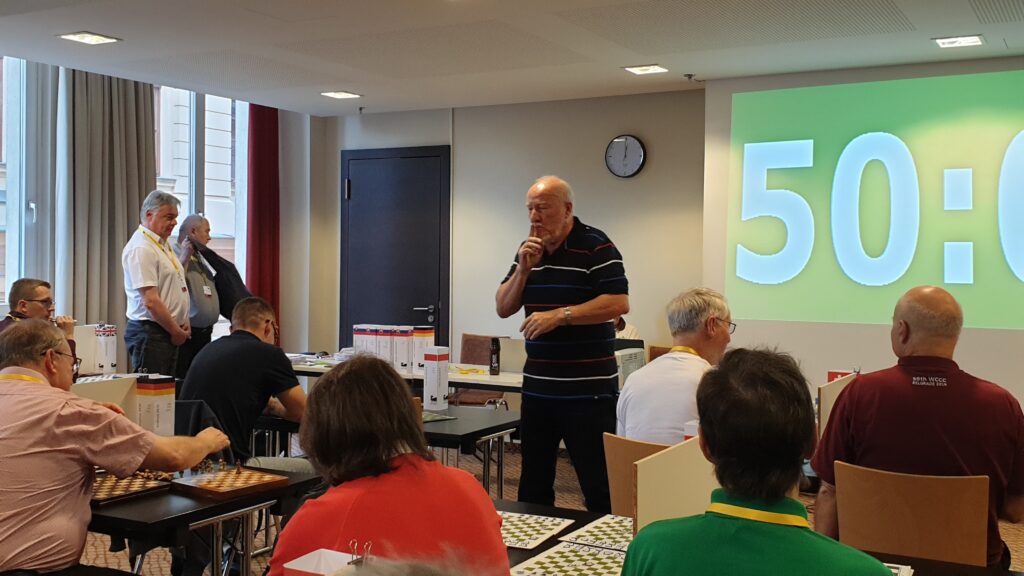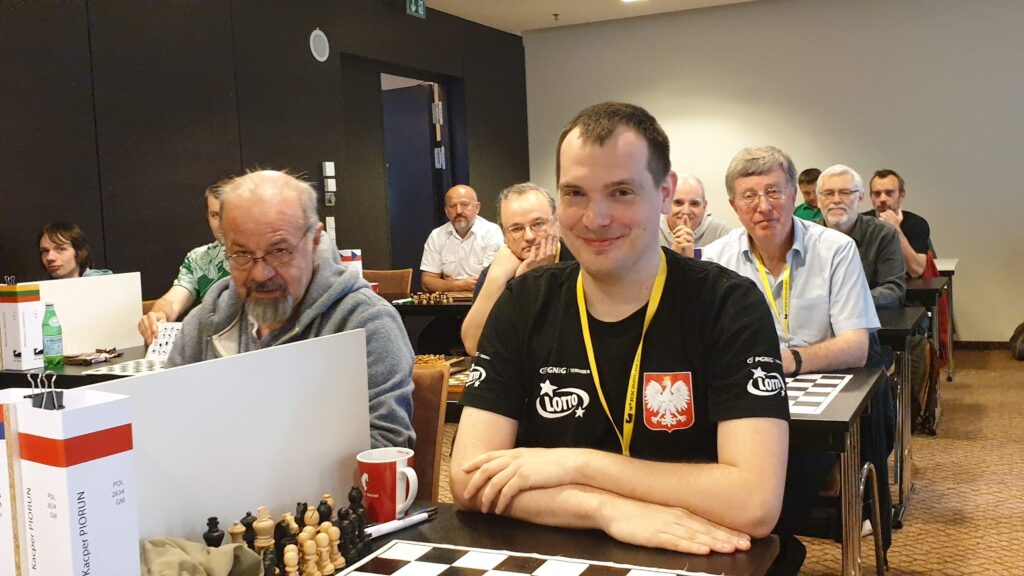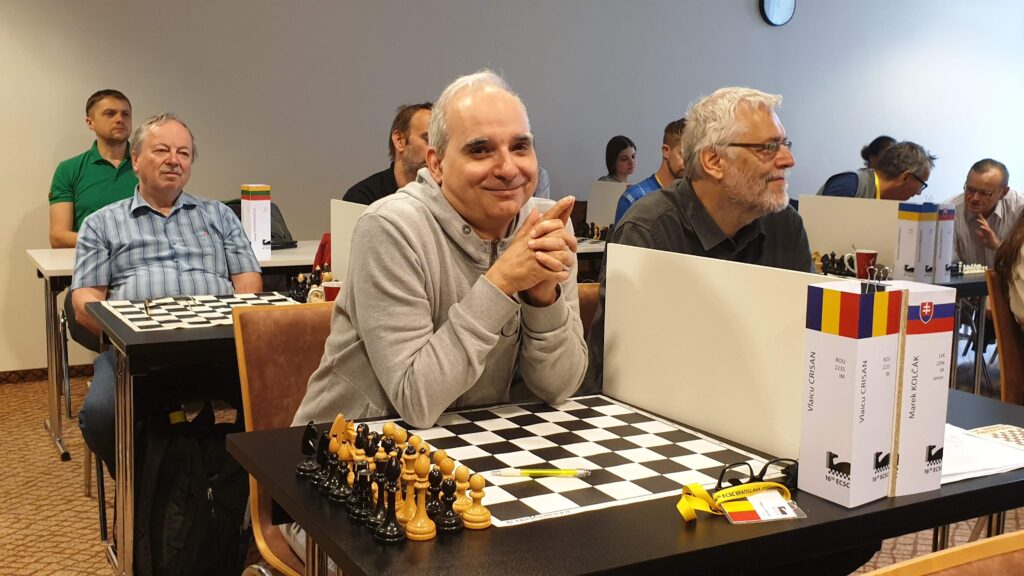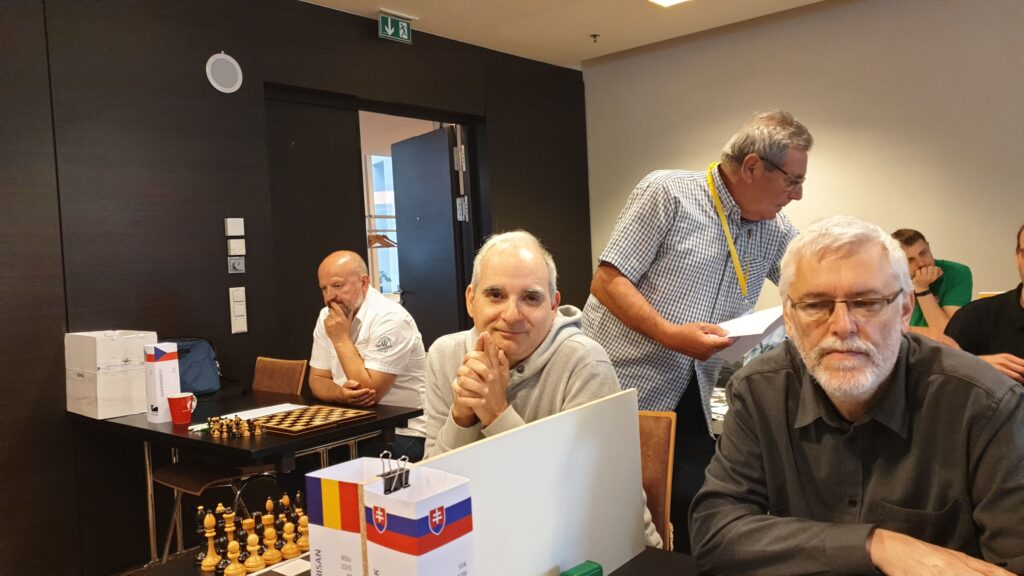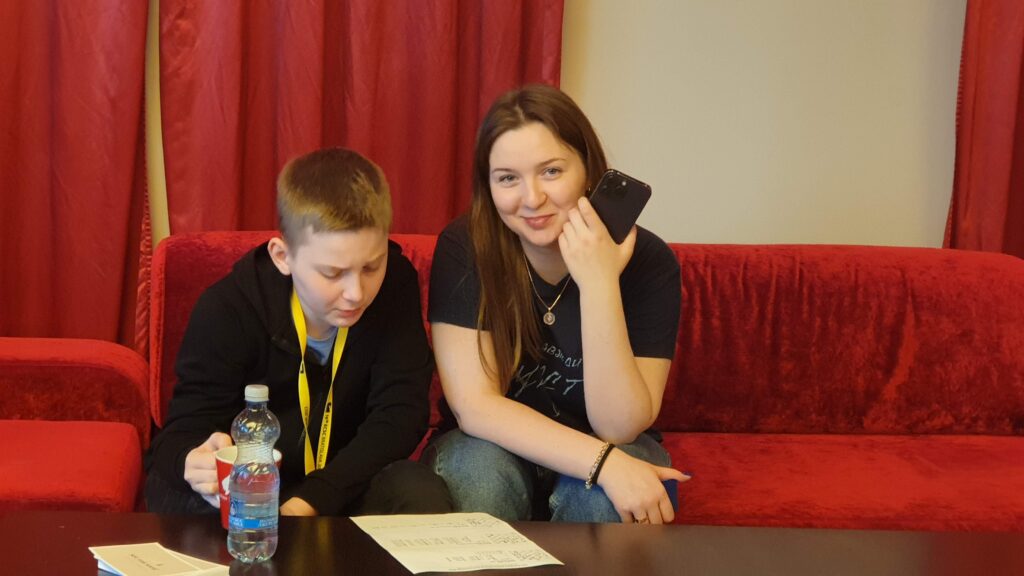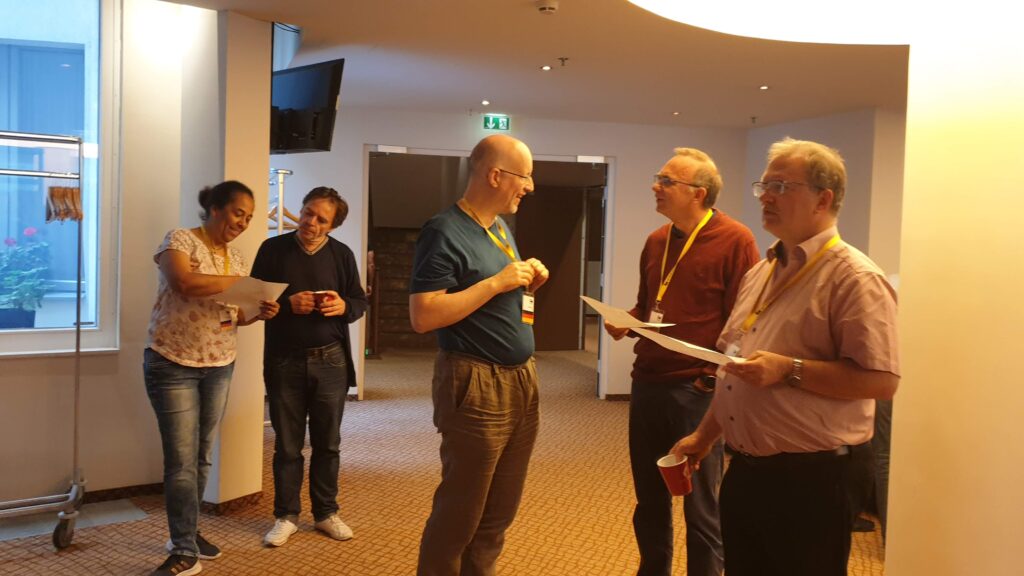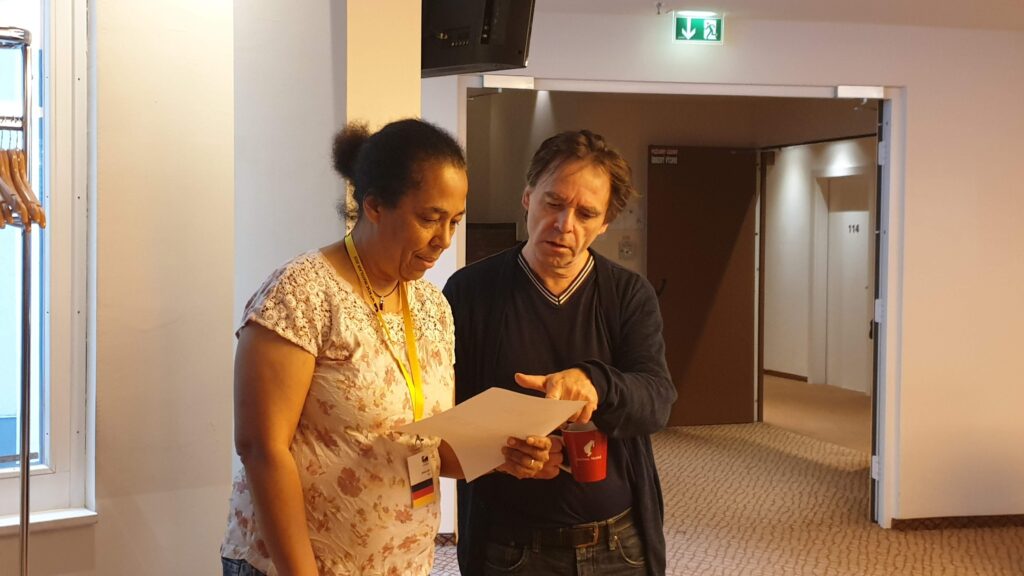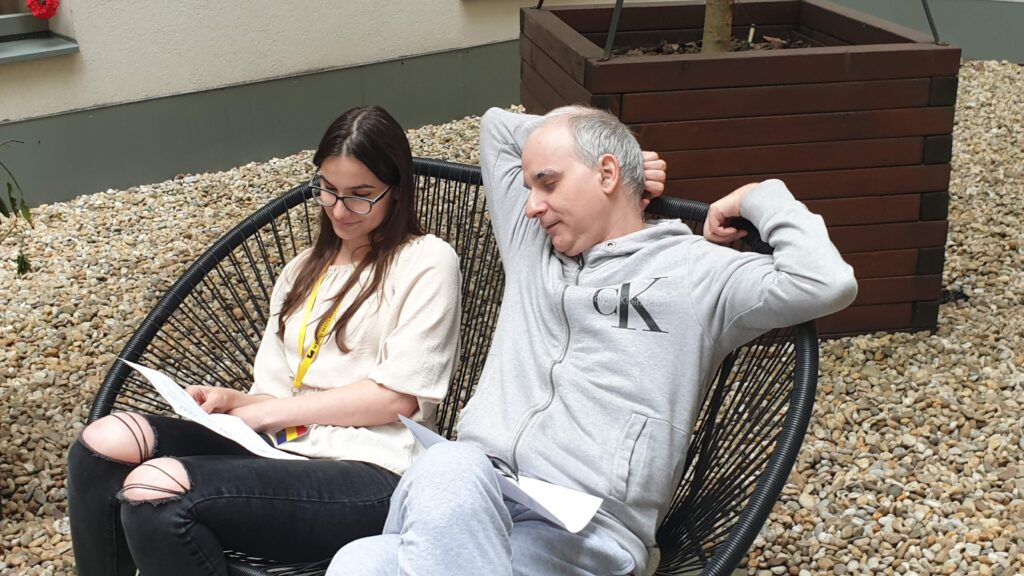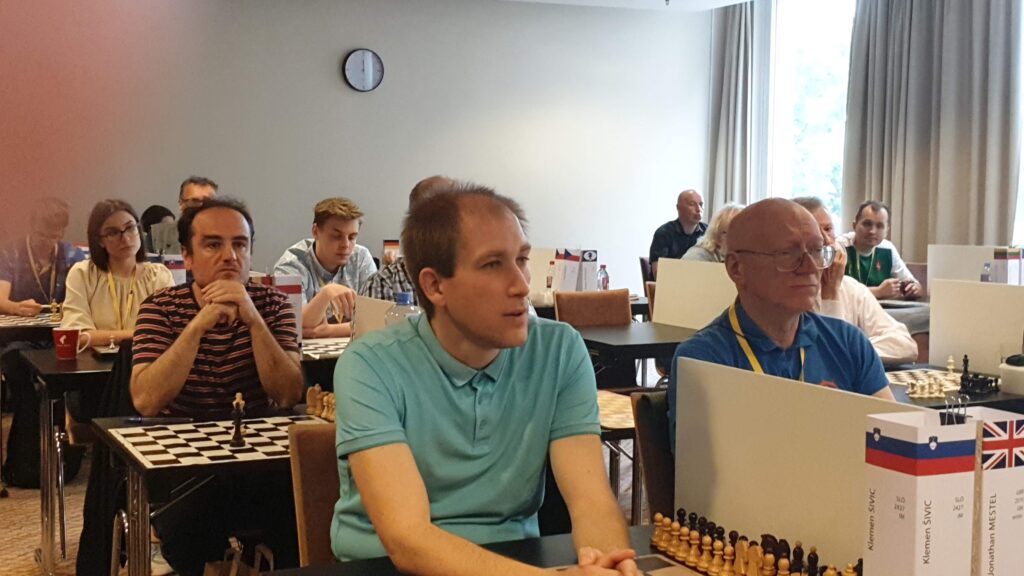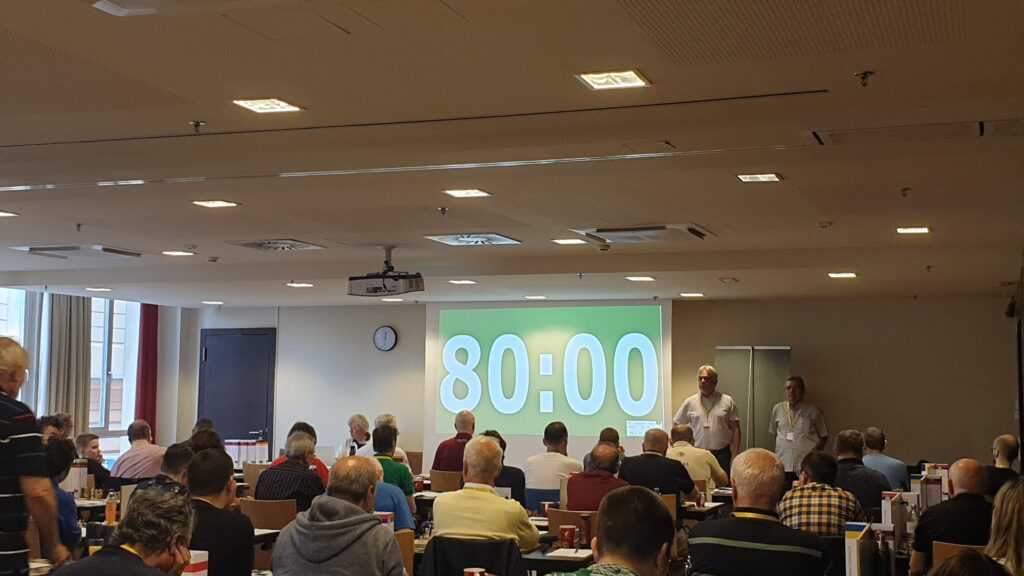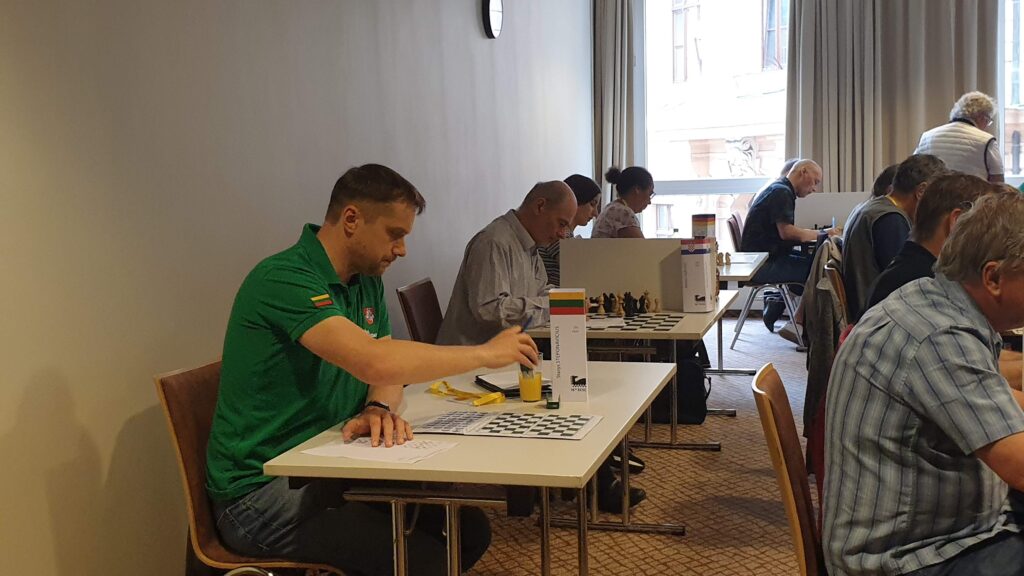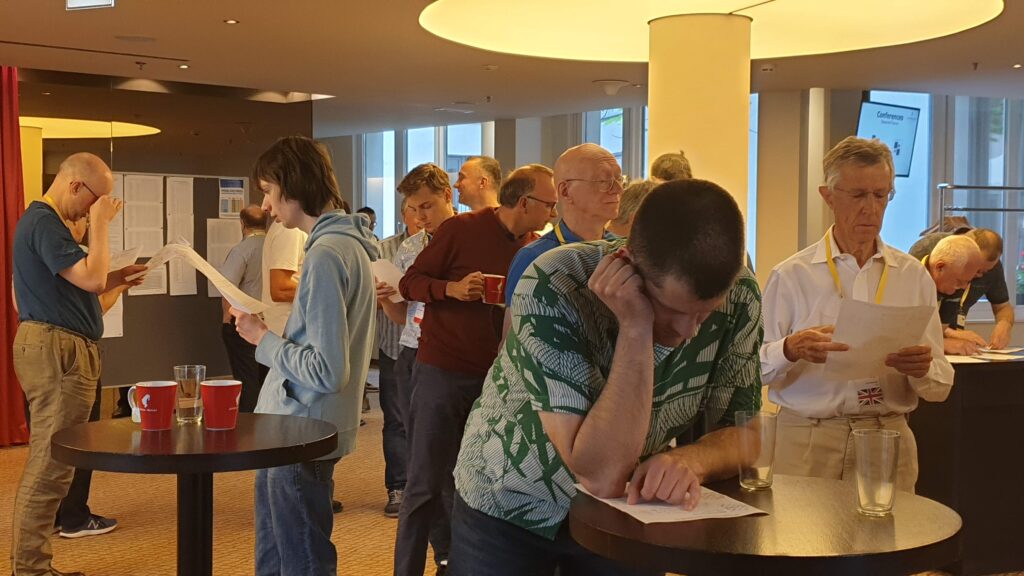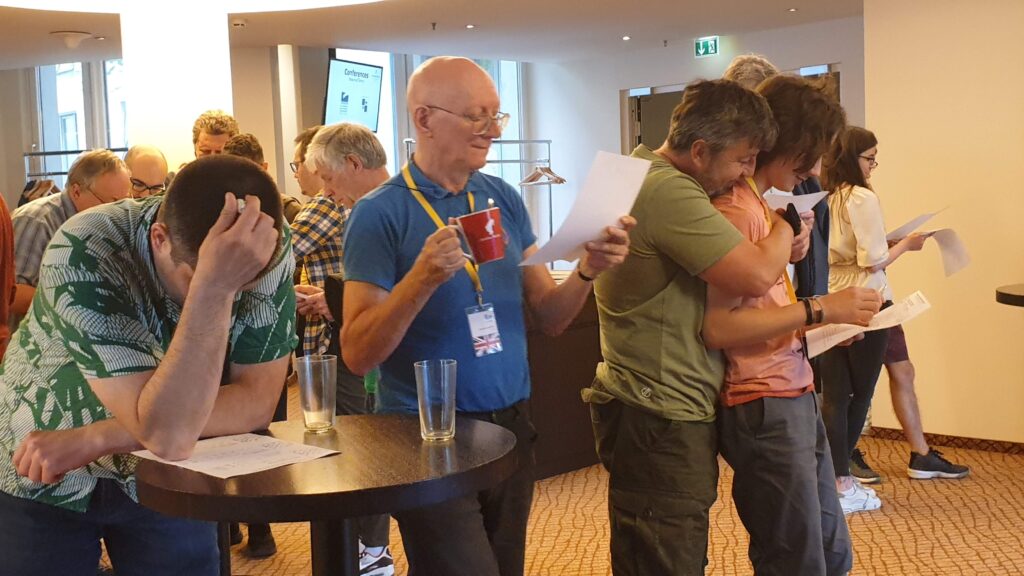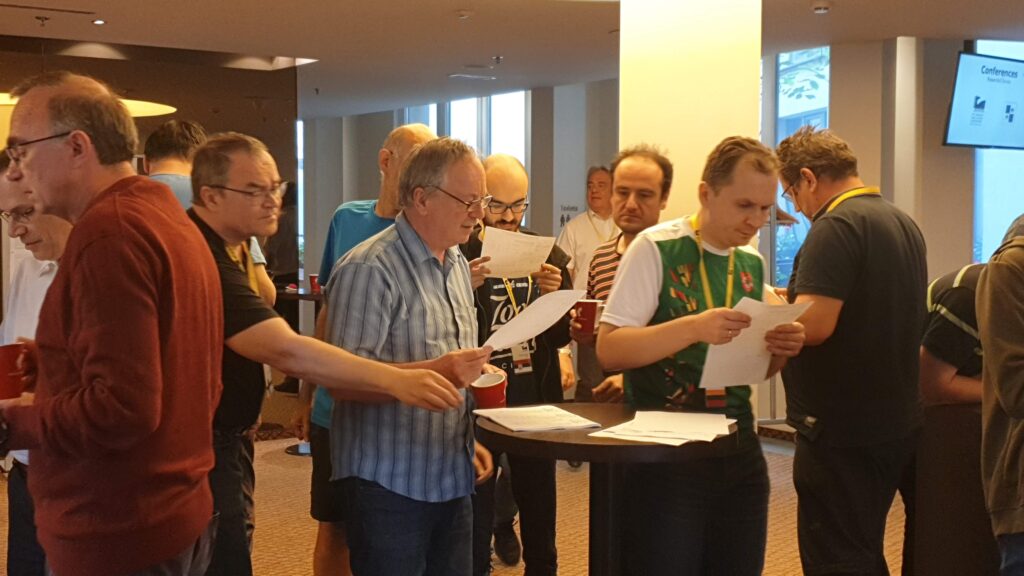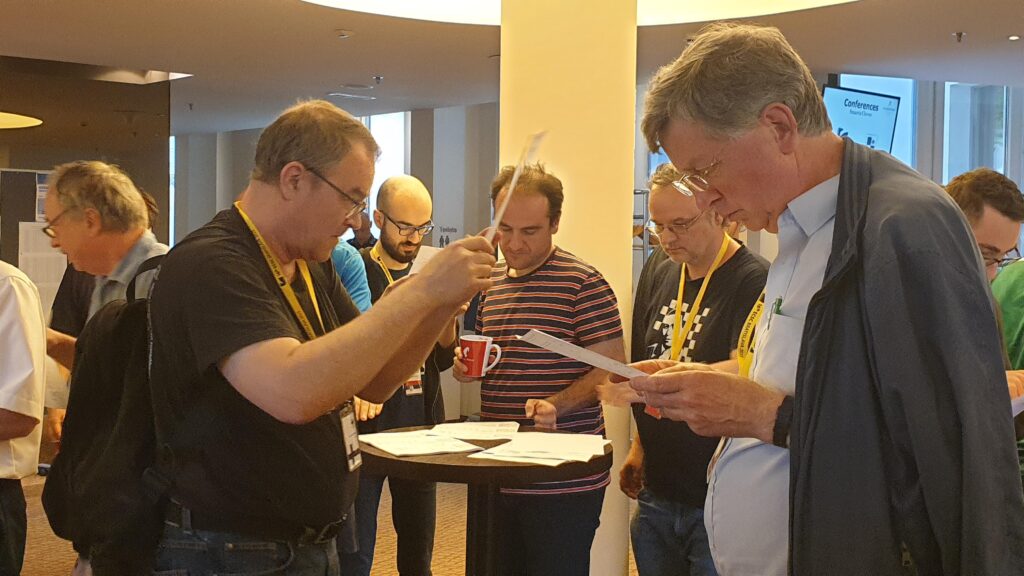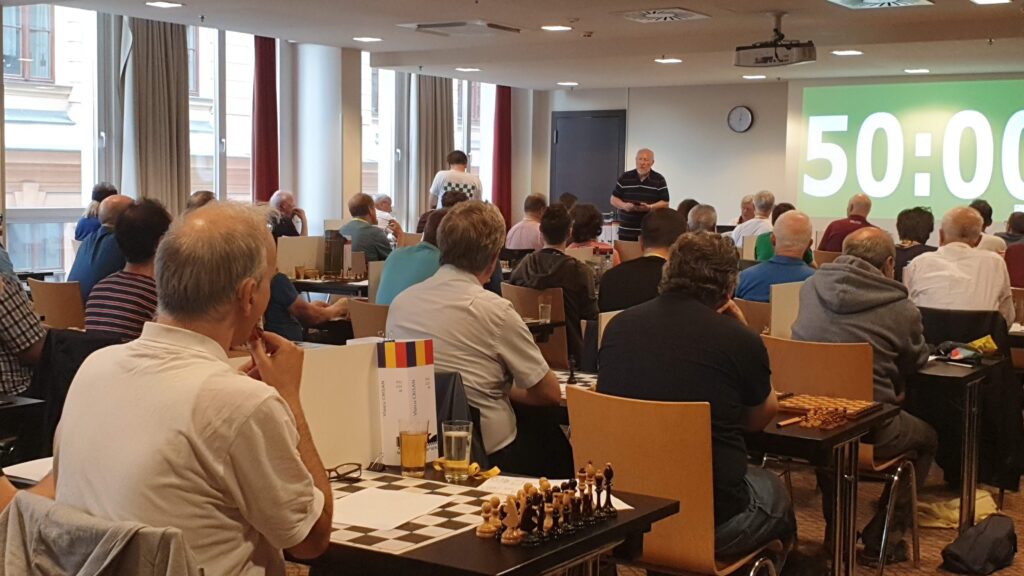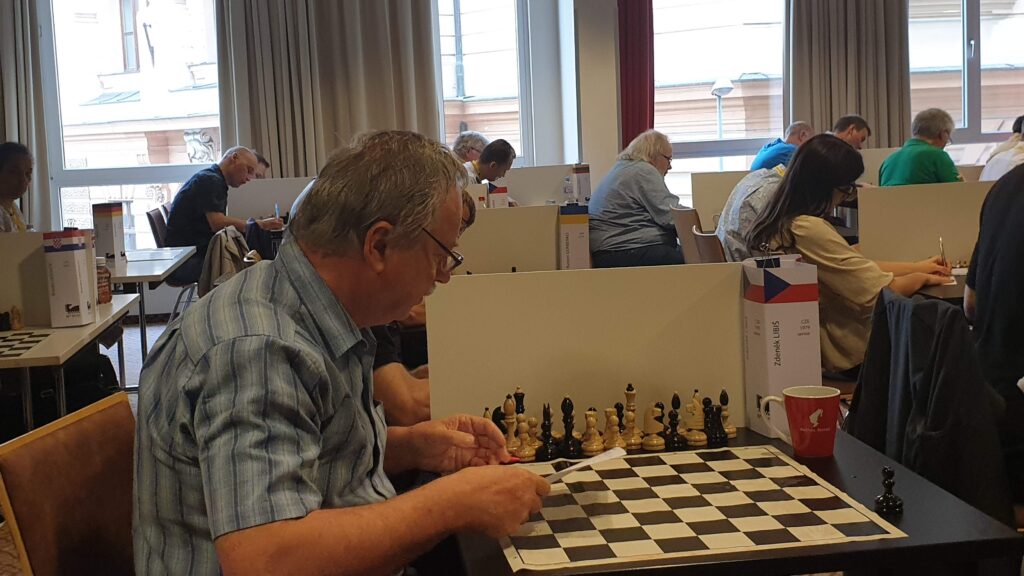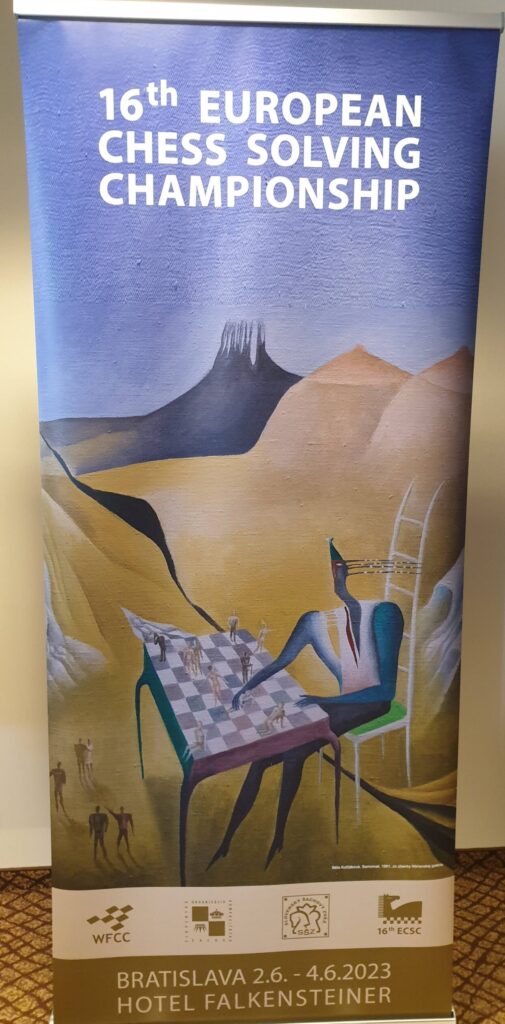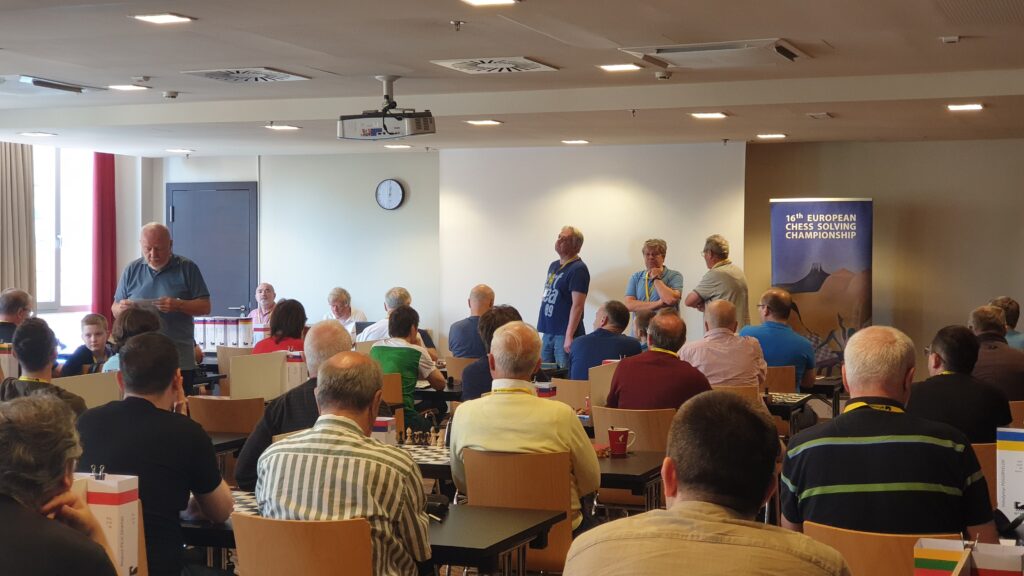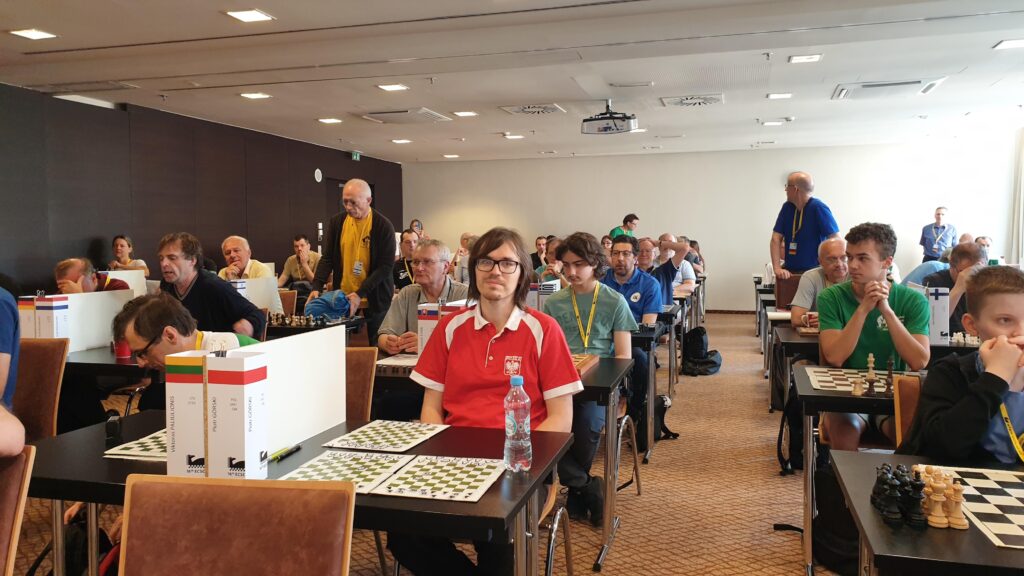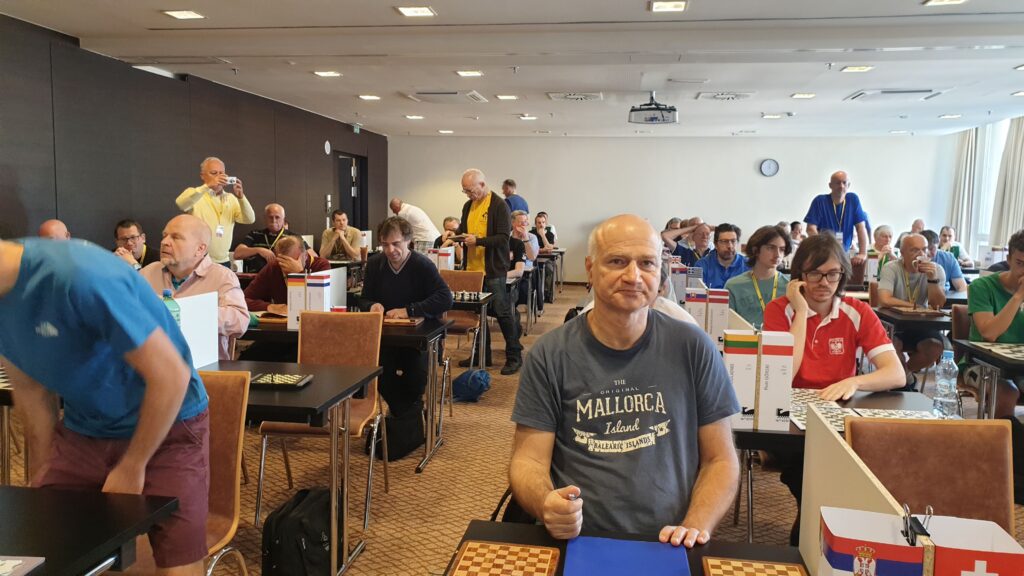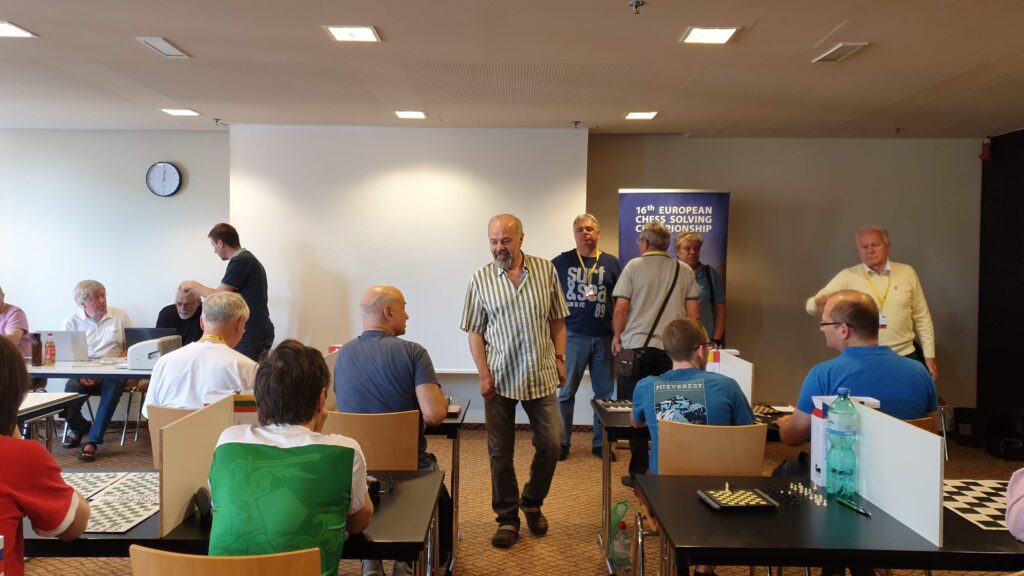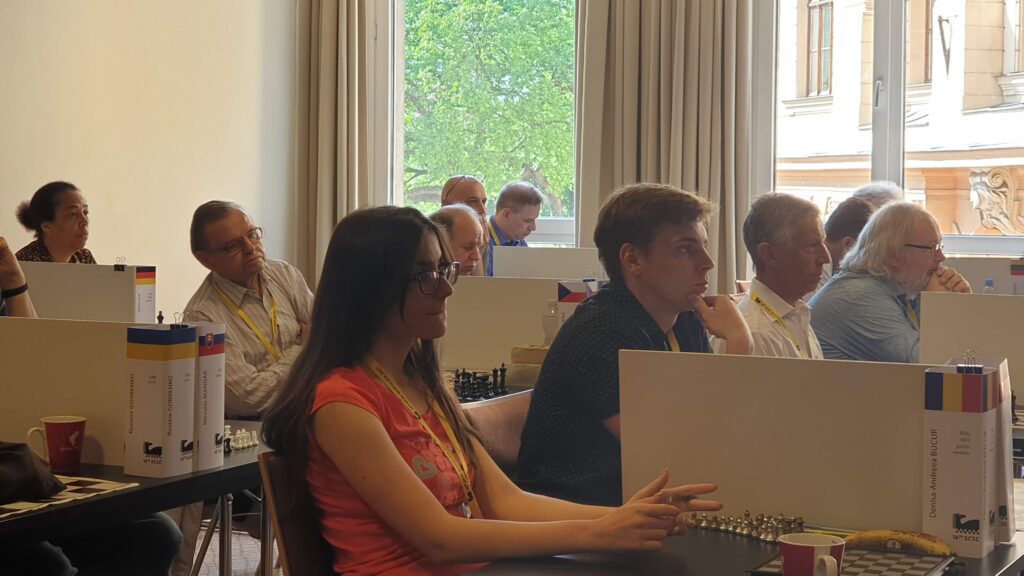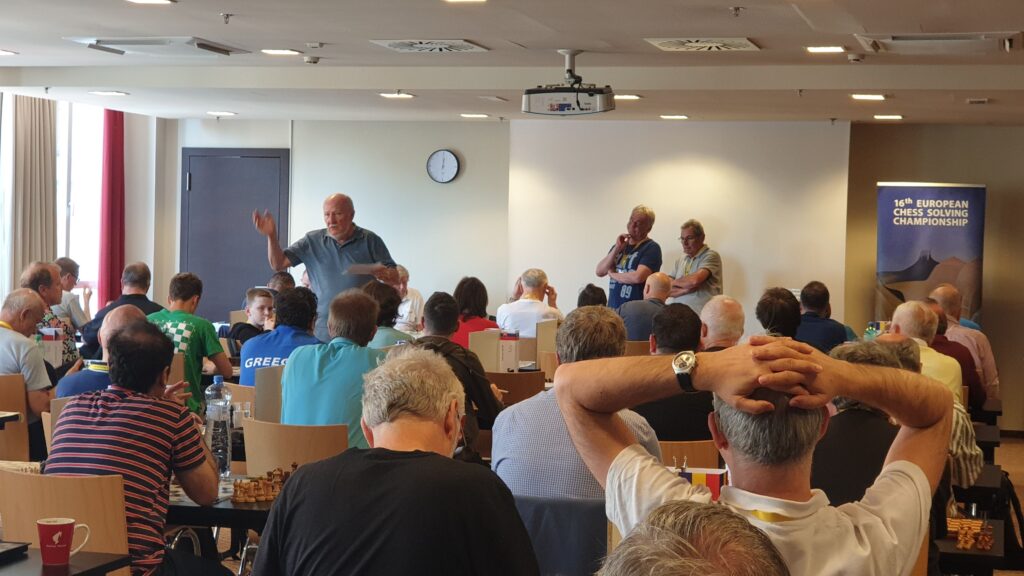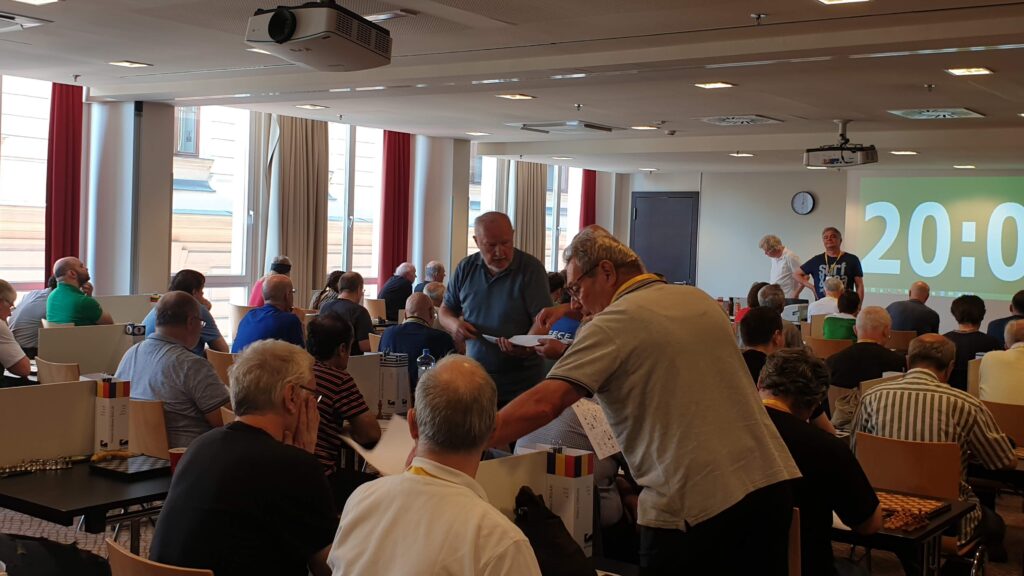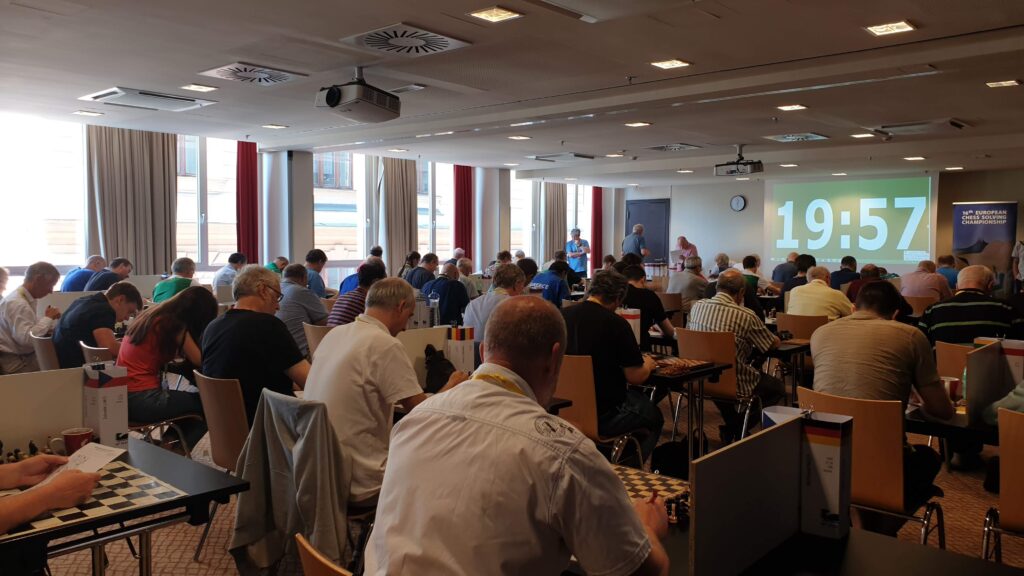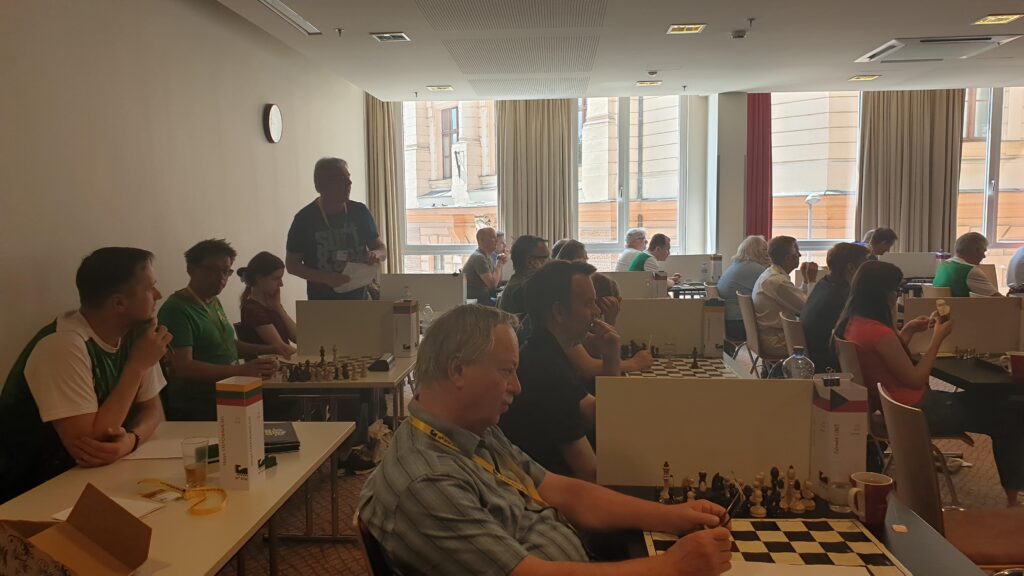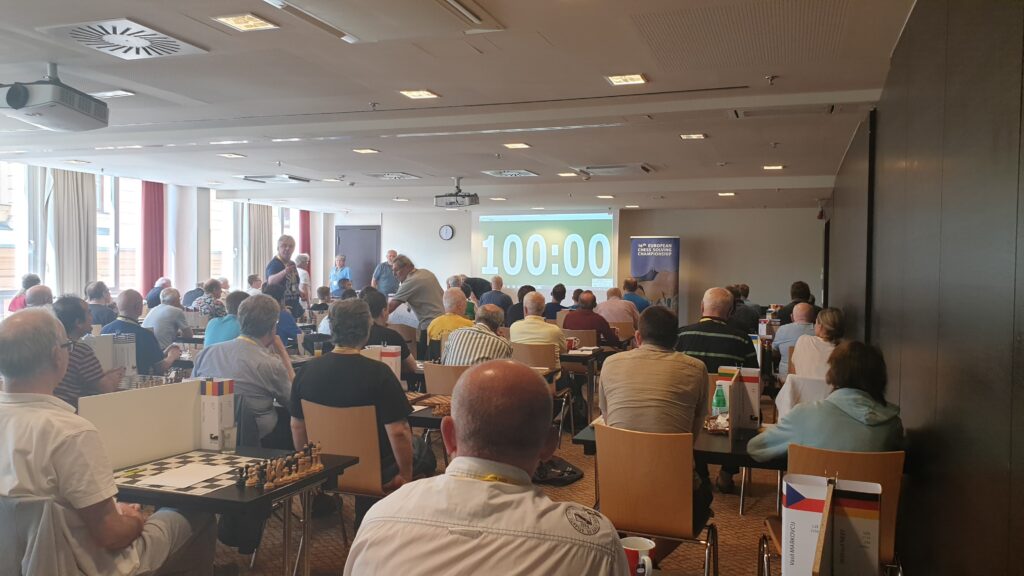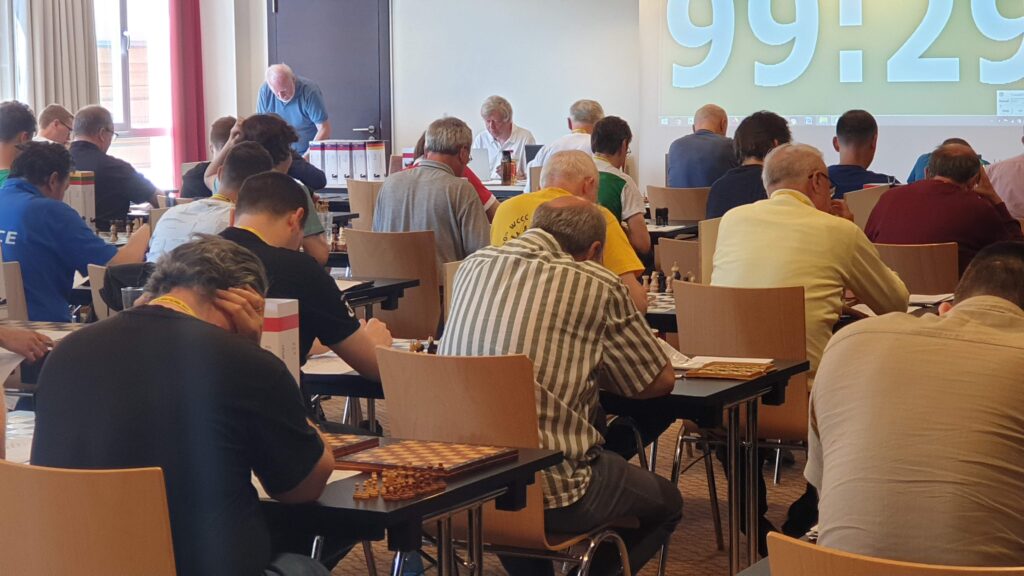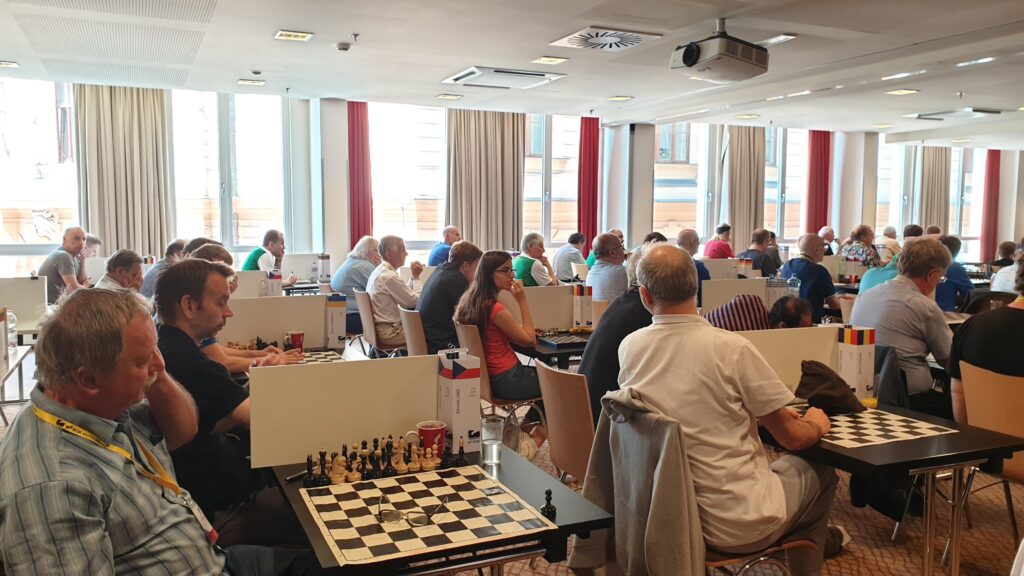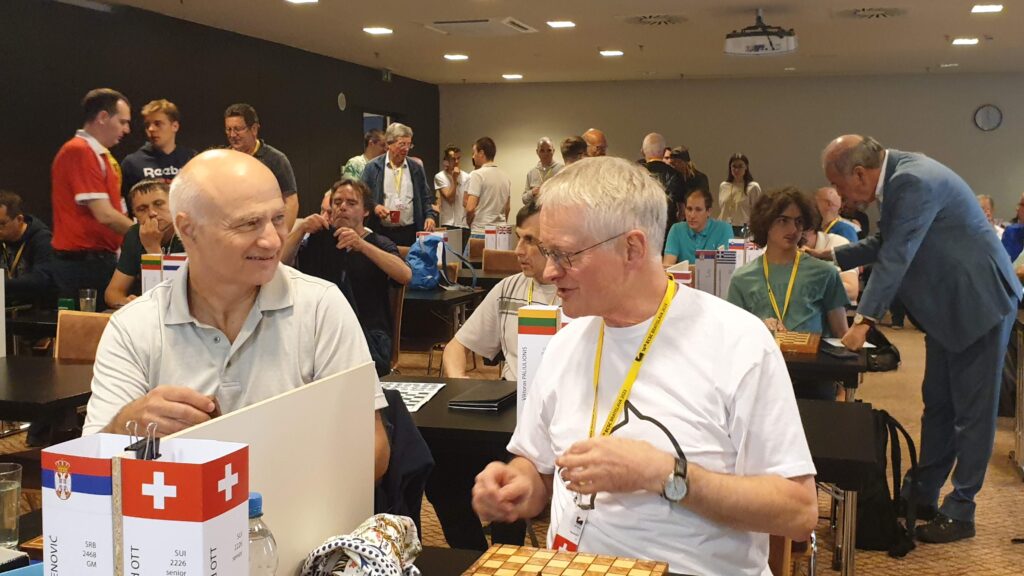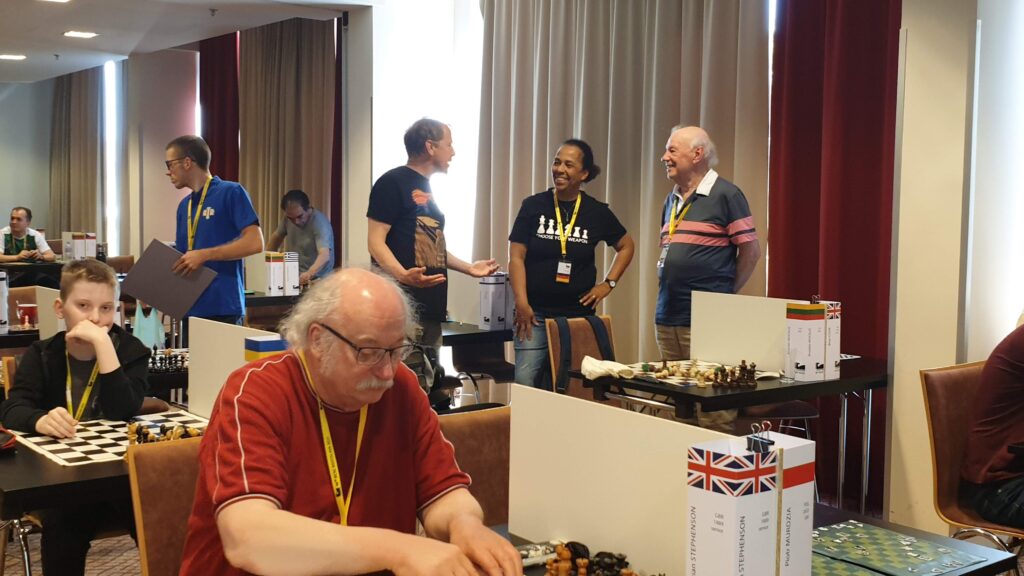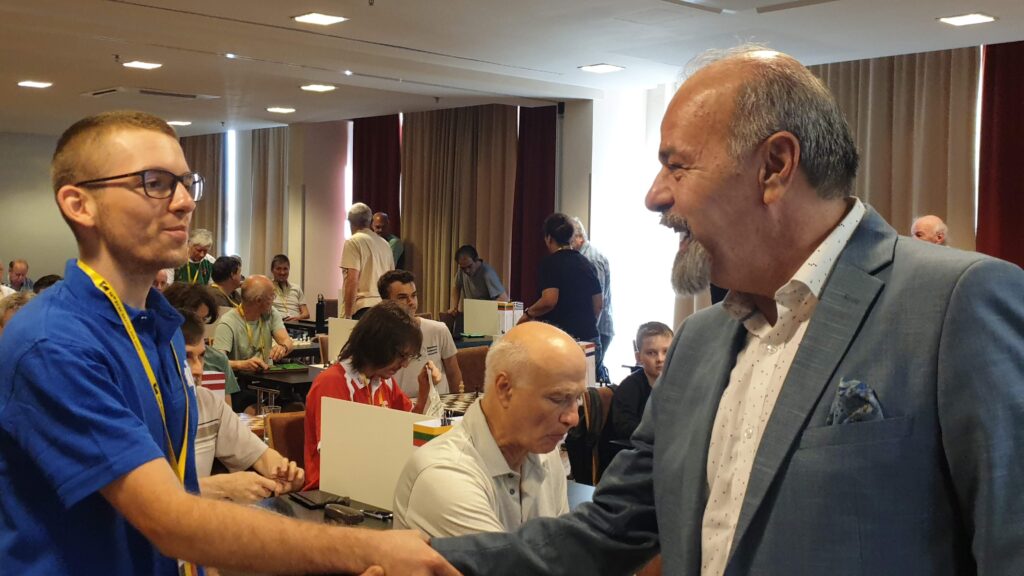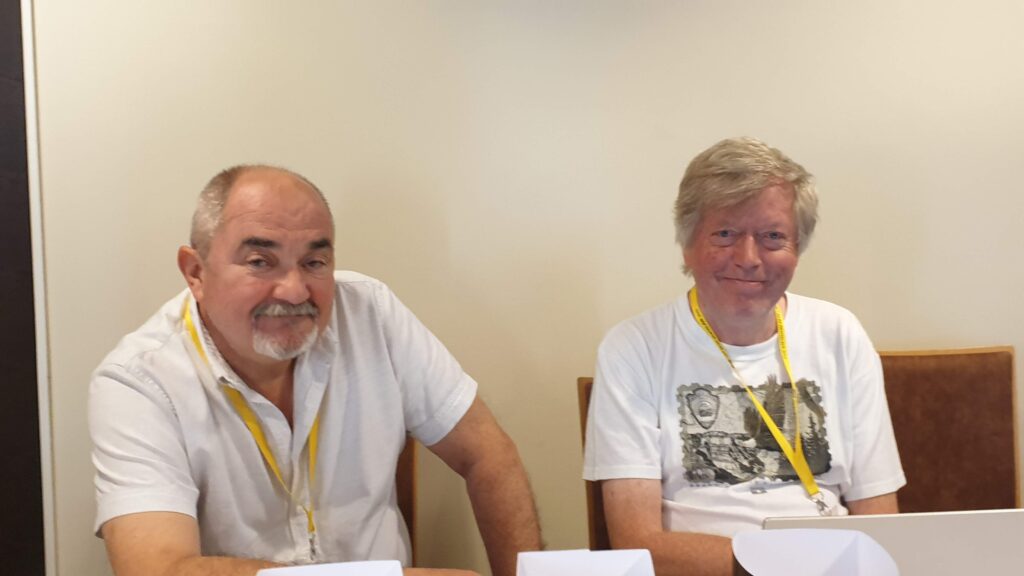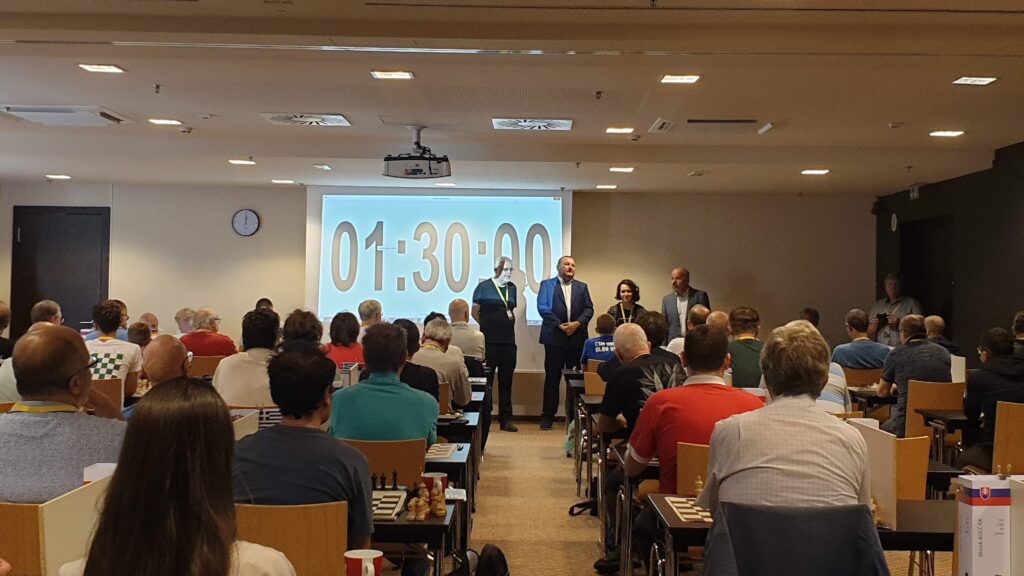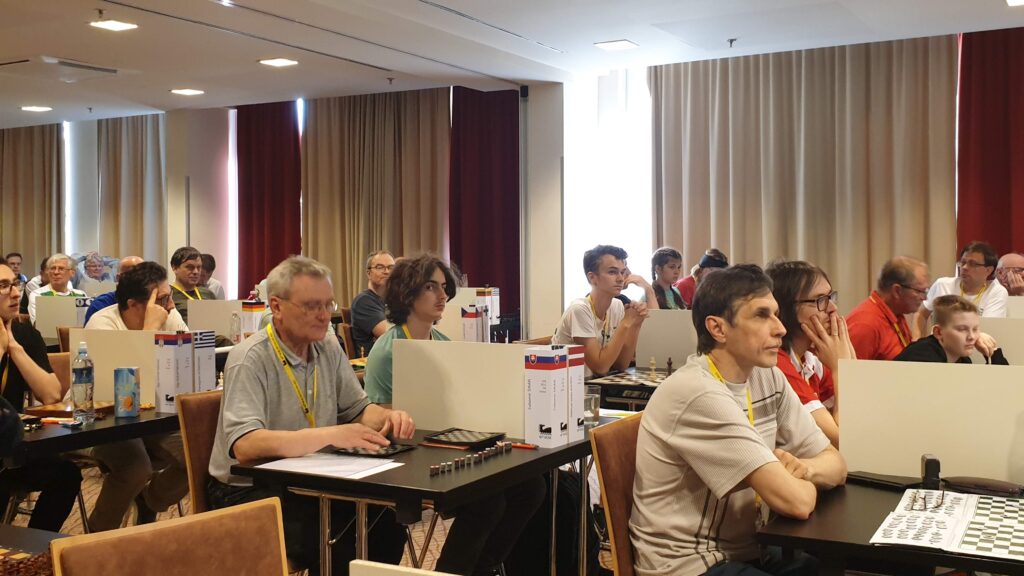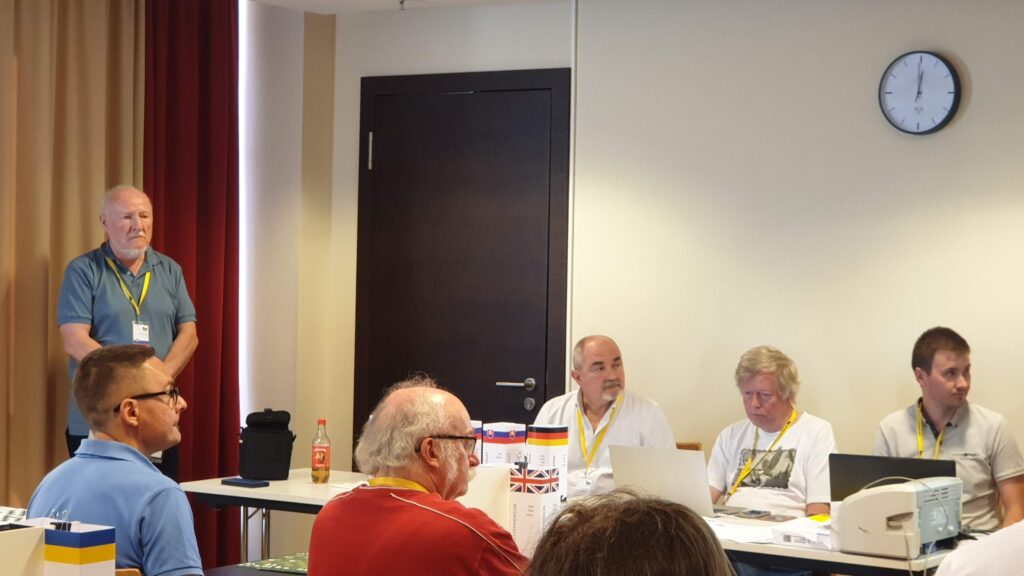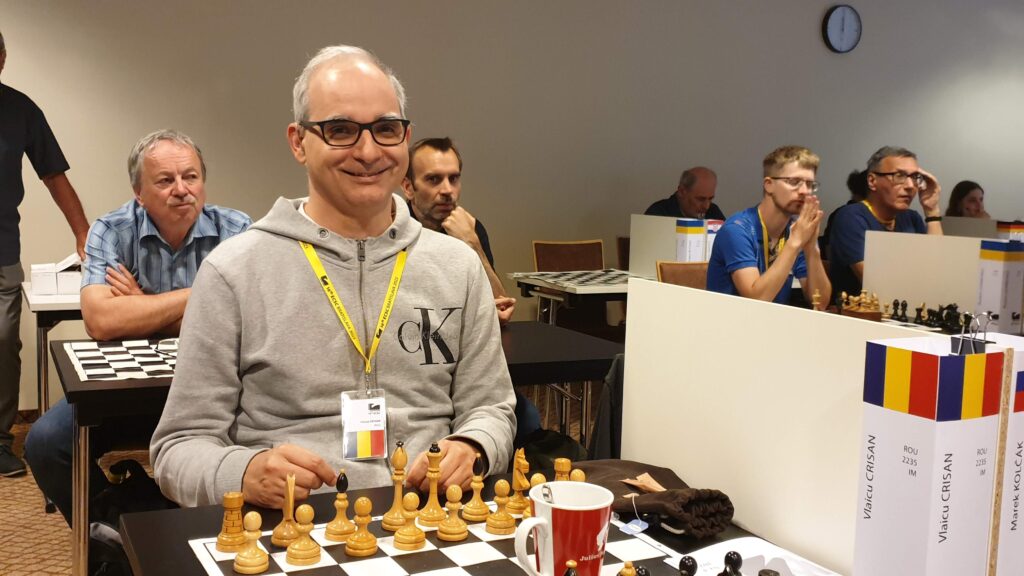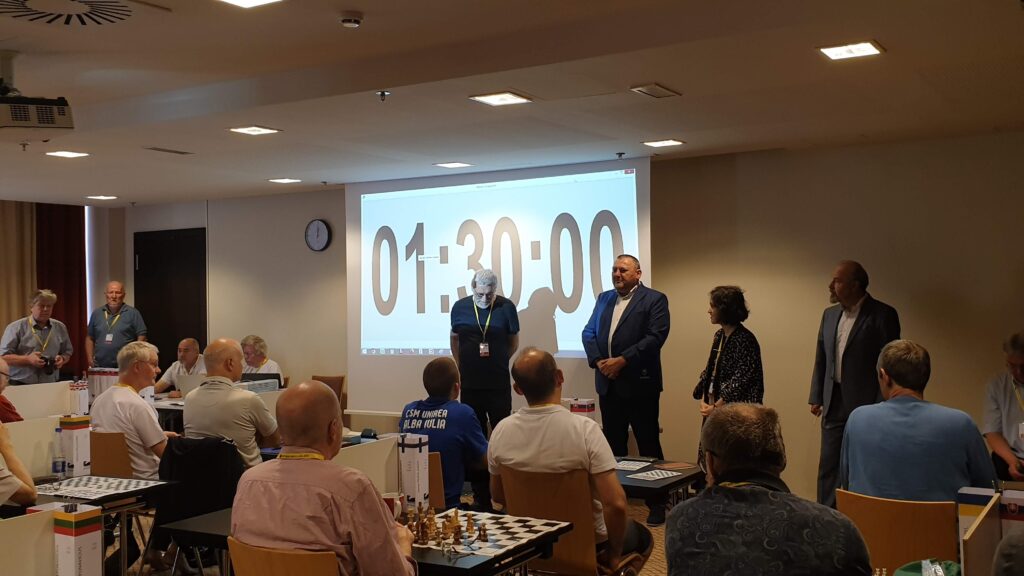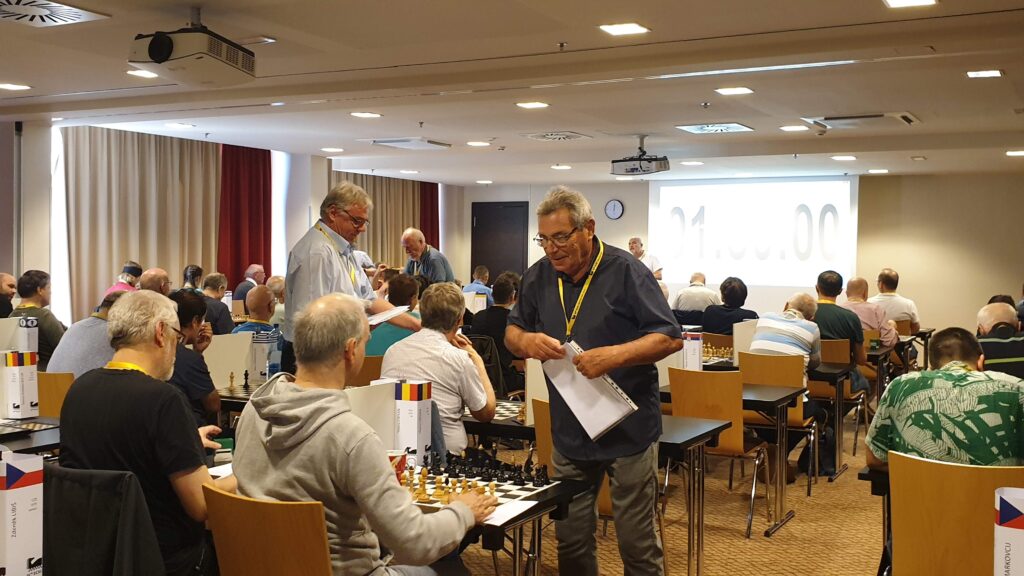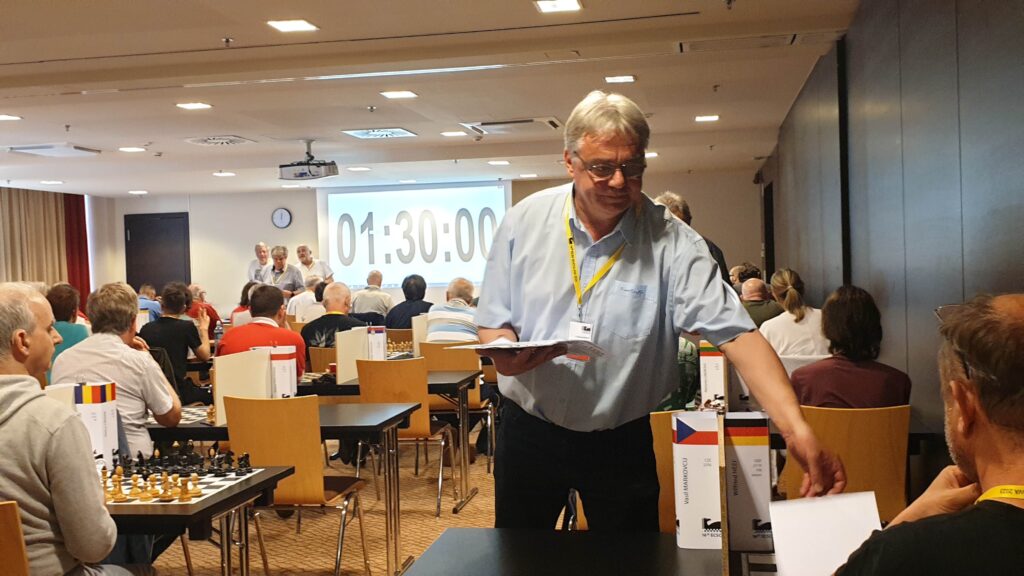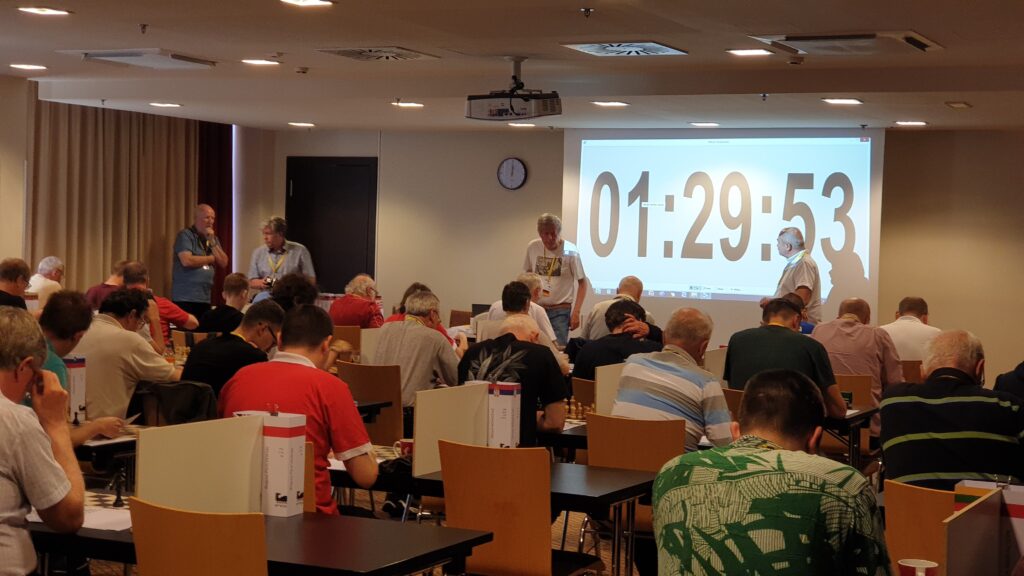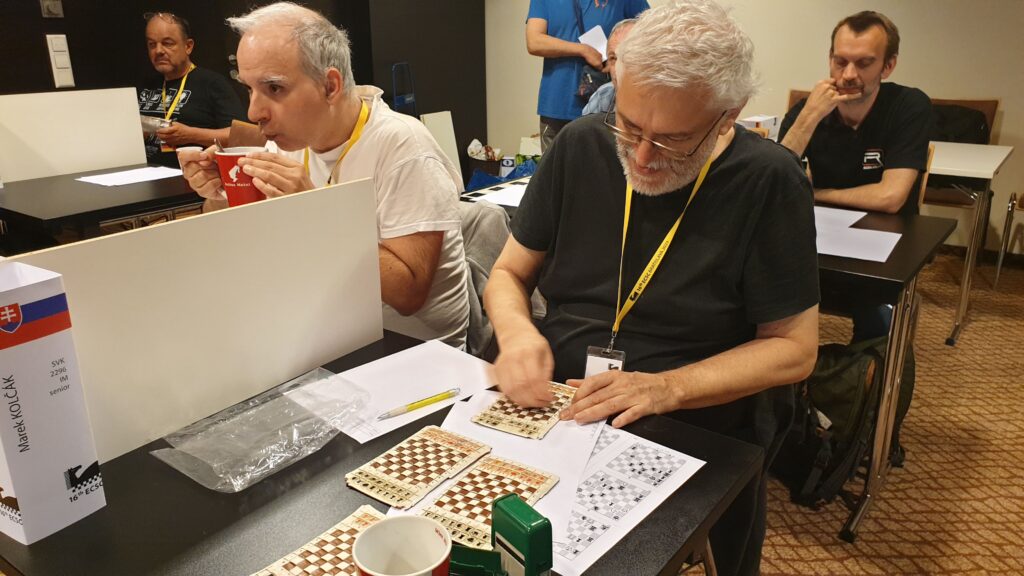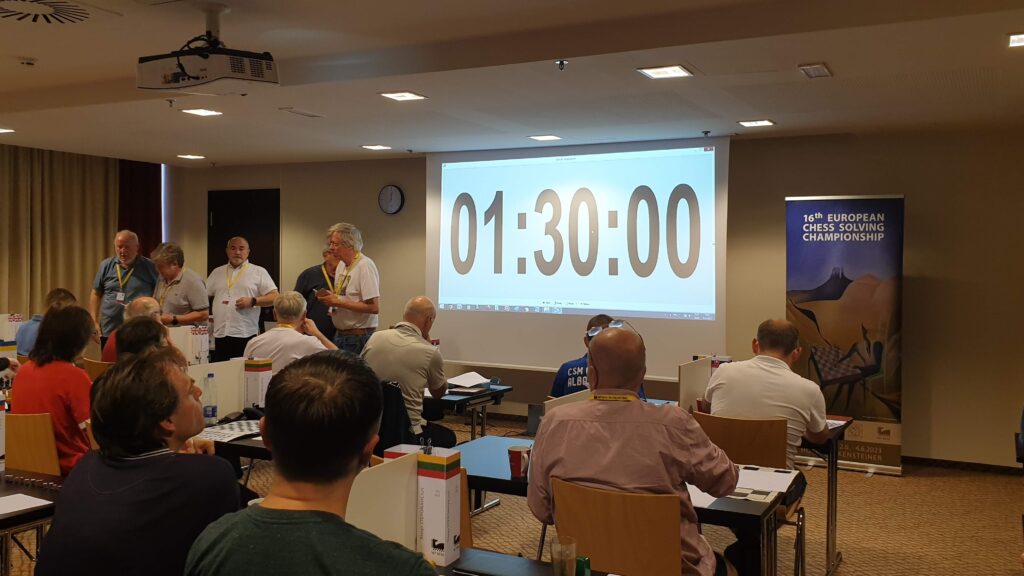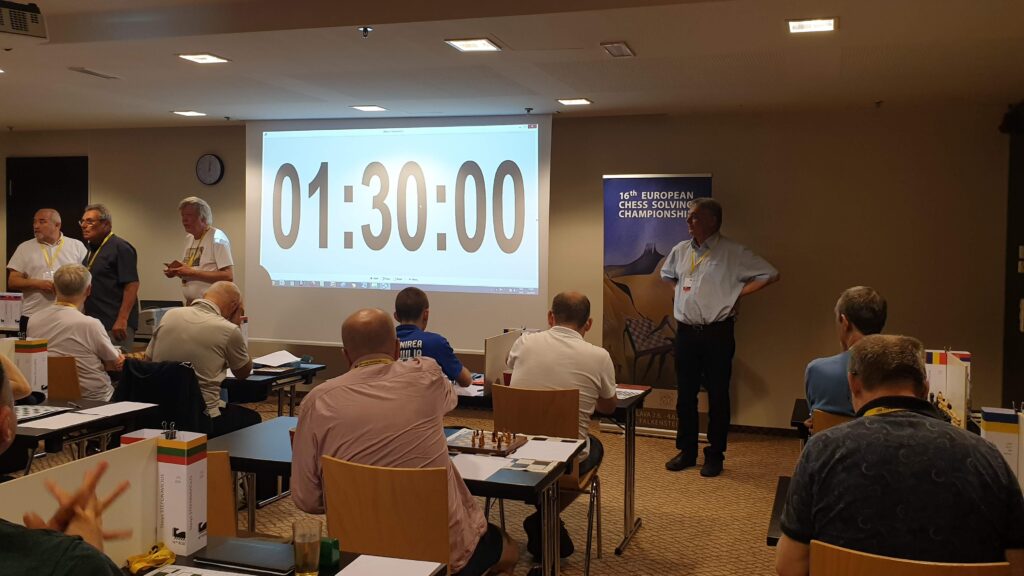42nd Azerbaijan Chess Solving Championship 2023 | 14th tournament of World Solving Cup 2022/2023:
Participants: 33 | Winner: Araz Almammadov (AZE – (Azerbaijan Champion for the 16th time!) ahead of junior solvers Iaroslav Tarasenko (FID) and Maksim Kharitonov (FID)
Average rating of top ten solvers: 1951.16 | WSC category: 14
Top 5 World Solving Cup (unchanged: 1. Kevinas Kuznecovas (LTU) 90 points, 2. Martynas Limontas (LTU) 71 points, 3. Piotr Murdzia (POL) 64 points, 4. Eddy Van Beers (BEL) 50 points, 5. Jonathan Mestel (GBR) 46 points.
More details published in Competitions→Solving→World Solving Cup @ Solving Portal
FIDE Album 2019-21 Section H results
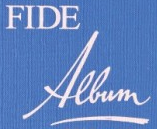
The results of the FIDE Album 2019-21 section H are ready!
352 retros/proofgames scored at least 4,5 points (out of the totally submitted 375 entries), a pleasantly very high percentage of 93,8%. Out of this lot, 77 compositions are selected with 8+ points (including 24 qualifying from WCCI), a reasonable percentage of 21,9%.
Many thanks to the director and the judges for their hard and efficient work!
Update 28.06.2023: A version of a cooked length-record PG by the late Unto Heinonen was added.
Harry Fougiaxis, FIDE Album Committee spokesman
FIDE Album 2019-21 Section B results

The results of the FIDE Album 2019-21 section B are ready!
797 threemovers scored at least 4,5 points (out of the totally submitted 950 entries), a very good percentage of 83,9%. Out of this lot, 169 compositions are selected with 8+ points (including 65 qualifying from WCCI), a reasonable percentage of 21,2%.
Many thanks to the director and the judges for their hard and efficient work!
Harry Fougiaxis, FIDE Album Committee spokesman
World Solving Cup 2022/2023 – Gera 17./18.6.2023
45th German Solving Championship 2023 | 13th tournament of World Solving Cup 2022/2023:
Participants: 21 | Winner: Ulrich Voigt (GER – German Champion and 3rd IM norm!) ahead of Boris Tummes (GER) and Arno Zude (GER)
Average rating of top ten solvers: 2385.61 | WSC category: 6
Top 5 World Solving Cup: 1. Kevinas Kuznecovas (LTU) 90 points (unchanged), 2. Martynas Limontas (LTU) 71 points (+10), 3. Piotr Murdzia (POL) 64 points (unchanged), 4. Eddy Van Beers (BEL) 50 points (unchanged), 5. Jonathan Mestel (GBR) 46 points (unchanged).
16th ECSC Bratislava – final presentation
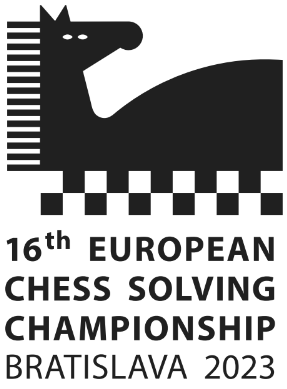
14 teams and 75 individuals (2 unofficial without rating calculations) from 18 countries participated in the 16th ECSC.
The three top teams: Poland, Lithuania, Slovakia
The three top individuals: Kacper Piorun (Poland), Piotr Murdzia (Poland), Eddy Van Beers (Belgium)
“European championships are returning to their traditional annual rhythm. We are happy that Bratislava was able to welcome the top European chess solvers. Many thanks to the ECSC director Marko Klasinc and the OPEN director Marián Križovenský. Bohumil Moravčík selected the problems for the OPEN, the selection of ECSC problems was made by Marko Klasinc. A lot of credit for the smooth running of the championship goes to Axel Steinbrink, who helped the directors in both tournaments. Ján Golha and Emil Klemanič assisted the directors also”
.… [see more]
– Marek Kolčák, member of the 16th ECSC organizing committee
See the whole ECSC 2023 presentation with the results, problems, solutions of the 16.ECSC and the competitions held in the frames of it.
Preliminary Results ECSC 2023, R4-6

(04.06.2023, 14:45) ECSC 2023: Preliminary results after the last (6th) round:
INDIVIDUAL | TEAMS
Protests accepted until 15:30!
(04.06.2023, 13:10) ECSC 2023: Preliminary results after the 5th round:
INDIVIDUAL | TEAMS
(04.06.2023, 11:30) ECSC 2023: Preliminary results after the 4th round:
INDIVIDUAL | TEAMS
ECSC2023: Baltic Combined & Blind Solving
(03.06.2023) Two additional solving competitions were held in the frames of ECSC 2023 on Saturday, 03 June 2023.
BLIND SOLVING – RESULTS
The blind solving tournament is a rapid-fire tournament in the style of quick solving, where problems are presented one by one on a screen. Unlike in ordinary quick solving, where diagrams are shown, in this tournament problems will be presented in notation only.
…read more…BALTIC COMBINED – RESULTS
Conceived by Ilja Ketris for the 13th ECSC in Riga 2017, Baltic Combined is a tournament which will test both composing and solving skills. Every participant must send one original orthodox helpmate in two with only one solution.
…read more…World Solving Cup 2022/2023 – Bratislava 2.6.2023
ECSC Open Solving 2023 | 12th tournament of World Solving Cup 2022/2023:
Participants: 71 | Winner: Piotr Murdzia (POL) ahead of Jonathan Mestel (GBR) and Eddy Van Beers (BEL)
Jakub Marciniszyn (POL) with third FM and second IM Norm!
Average rating of top ten solvers: 2557.55 | WSC category: 2
Top 5 World Solving Cup: 1. Kevinas Kuznecovas (LTU) 90 points (unchanged), 2. Piotr Murdzia (POL) 64 points (+41), 3. Martynas Limontas (LTU) 61 points (unchanged), 4. Eddy Van Beers (BEL) 50 points (+31), 5. Jonathan Mestel (GBR) 46 points (+36).
More details published in Competitions→Solving→World Solving Cup @ Solving Portal
Preliminary Results ECSC 2023, R1-3

(03.06.2023, 20:08) ECSC 2023: Preliminary results after the 3rd round:
INDIVIDUAL | TEAMS
(03.06.2023, 13:30) ECSC 2023: Preliminary results after the 2nd round:
INDIVIDUAL | TEAMS
1st ROUND gallery:
2nd & 3rd ROUND gallery:
Preliminary results of the OPEN ECSC2023
(03.06.2023) Preliminary results of the Open tournament, 02.06.2023, in the frames of ECSC 2023 in Bratislava. (Main Judge: Marián Križovenský | Problems Selected by: Bohumil Moravčík)
1-2 place shared by Jonathan Mestel and Piotr Murdzia ahead of Eddy Van Beers.






